Graduate student

Ahhyeon, Suh
- Sleep
- Emotion
- Memory
Countless images encountered in daily life are recombined and appear each night as dreams. However, memories of dreams are easily forgotten during the course of everyday life. This strong volatility of dream memory led me to question why dreams must have been preserved through evolution. Motivated by this academic curiosity, I chose to major in Brain and Cognitive Sciences.
Advances in techniques that allow precise measurement of sleep stages have enabled genetic-level insights into sleep. Ultimately, my goal is to broaden our understanding of the mechanisms and functions of dreaming.

Nurgazina, Gulim
I earned my BSc in Computer Science from Nazarbayev University, but my curiosity has always gone beyond code — I’m fascinated by neuroscience, psychology, decision making, and the hidden processes of the brain. I hope to explore how AI can help us further uncover the brain’s mechanisms, and at the same time, how insights from neuroscience can inspire more intelligent AI systems. For me, studying the mind is not just about research — it’s about discovering new ways for humans and technology to learn from each other and grow together.
Gimadeeva Gulnara
Growing up in a family of doctors, I developed a deep curiosity about the natural sciences and the mysteries of the human brain. Later, during my studies at the Higher School of Economics, I combined this curiosity with technology, graduating with a degree in Business Informatics and completing a minor in Data Science. This experience sparked my interest in exploring how artificial intelligence can be applied to cognitive research, particularly in understanding complex brain processes.

Zheng, Aner
- Human behavior
- Human mental processes
- Evolution
- Psychophysics
I am deeply interested in human mental processes and behavior. Human mental processes and behaviors can generally be divided into collective patterns, which are commonly observed across many people, and individual patterns, which show significant variation among individuals. I am particularly curious about why some mental processes and behaviors are shared by most people while others exhibit substantial individual differences, and how these processes and behaviors contribute to individual survival or to the evolution of humanity as a whole. Currently, I am conducting research on how learning occurs through social interactions within human groups and what role such social learning plays in the evolutionary process. Moving forward, I hope to continue pursuing research in areas that fascinate me, to uncover new insights, and to contribute to the advancement of science.

Jeong, Diane
- Sleep regulation
- Neuronal disease

Eunbi Yoon
- Bayesian Filtering
- Circadian Rhythm
- SDE
- Computational Neuroscience
Among complex life phenomena, I am very interested in analyzing the principles of how the brain works through mathematical formulation and modeling them into predictable forms. Since the dynamics of the brain are inherently uncertain, I would like to apply Bayesian filtering to infer invisible states based on descriptions and observable data with SDE. My research goal is not just to build a theoretical foundation, but to implement concrete models using ground truth data such as real wearable data. Through this methodology, I would like to infer individual circadian rhythm dynamics and further explore ways to contribute to psychological state and mental health management.

Dongsu Choi
- lexible Electronics
- Neural Interfaces
- Assistive Robotics
- Bio-compatible Materials
From an early age, I have been deeply interested in scientific approaches to connecting the brain and body, inspired by observing the lives of people with physical challenges. As an undergraduate, I majored in Mechanical Engineering, focusing on robotics and materials research as a foundation for assistive technologies. In particular, I am interested in creating next-generation brain–machine interfaces using soft and bio-compatible materials, allowing natural communication between the nervous system and assistive devices. Looking ahead, my goal is to expand this interdisciplinary research into patient-tailored assistive technologies. Ultimately, my work is dedicated not only to scientific discovery but also to improving human quality of life.

LEE, JONG GIL
- Gene editing
- Gene therapy
- Mitochondrial disease
- Molecular biology
I have been deeply interested in gene expression and its regulatory mechanisms since my undergraduate years. During my research, I observed that approaches targeting gene expression often help alleviate symptoms in many diseases, but they do not always provide a definitive cure. Seeking more fundamental therapeutic strategies led me to focus on gene-editing technologies, and I chose to pursue studies in cognitive neuroscience to develop treatment approaches for mitochondrial metabolic disorders and neurological diseases from a genetic perspective.
I am currently studying the basic principles of gene editing as well as genome-editing techniques that target the mitochondrial genome and the challenges associated with the efficiency of delivering nucleic acids into mitochondria.
In the long term, my goal is to advance mitochondrial genome-editing technologies—still at an early stage of research—into safe and effective therapeutics.

Yu, Soyoen
- Gene Editing
- Mitochondria
- Genetic Disorders
- Human Well-being
I became interested in how people express emotions and studied character animation, which led me to wonder, in the age of artificial intelligence, what kinds of thoughts and actions are uniquely human, prompting my decision to pursue a degree in cognitive neuroscience. As a molecular biology major, I have developed a strong interest in exploring these questions at the genetic level and am currently researching various techniques to improve gene-editing efficiency. Moving forward, I aim to further investigate the editing of mitochondrial genes, the source of all cellular energy, and particularly to develop gene-editing tools capable of treating a range of genetic disorders, including neurological diseases. Ultimately, I hope to study and manipulate complex aspects such as thought, creativity, and emotion at the genetic level, contributing to a world where humans can live happier and healthier lives

Yang, Jeongbin
- Sociality and Emotion
- AnxietyDisorder
- Depression
- Stress coping
- Systems Neuroscience
I’m interested in why and how emotions arise, and how the brain responds to social stress and translates these responses into behavior. My long-term goal is that this research will contribute to improving diagnosis and treatment for patients with emotional disorders.
Although advances in medicine have helped overcome many diseases, brain disorders—especially emotional disorders—still suffer from limited diagnostic accuracy, public awareness, and effective treatment options.
I hope to become a leading scientist in systems neuroscience research on emotion and work to bring lasting benefits to society.

Song, Chaeyoung
- Neural circuits
- optogenetics
- anxiety
- immunology
I majored in Psychology and Life Sciences at Sogang University, where I recognized the need for a scientific approach to promoting modern mental health.
Based on my undergraduate research experience in a molecular immunology lab, I am seeking research topics that can bridge neuroscience and immunology. I aim to employ optogenetics to manipulate neural circuits and examine the resulting changes in anxiety-related behaviors and cytokine level.
Ultimately, my goal is to elucidate the circuit- and molecular-level mechanisms underlying mental health, and to use this scientific foundation to highlight the importance of mental health in society.

Seo yeonwoo
- Neural Interface
- Brain-Computer Interface (BCI)
- Closed-loop System Neuroengineering
- Neural Signal Processing Human–Machine Collaboration
My research interests lie in precise neural signal measurement and engineering approaches to brain–computer interaction. Inspired by next-generation neural interface technologies such as neuralgrains, I aim to establish a foundation that advances brain research to the next level.
My long-term goal is to develop a closed-loop brain-computer interface (BCI) system capable of monitoring brain activity in real time while simultaneously delivering appropriate stimulation. Through this work, I hope to contribute to the rehabilitation of patients with neurological conditions, enhance sensory perception, and ultimately open new possibilities for seamless human–machine collaboration.

Park Seong-hyun
- Visual prosthetics
- multi-sensory perception
- sensory-disability
I majored in Chemistry during my undergraduate years at Korea University. While studying science, I realized that technological advancements aimed at creating a more convenient world can inadvertently widen the gap among people. Therefore, it is necessary to develop technology for a convenient world, but I thought, "Someone should also develop technology for a world that is not-uncomfortable" With this in mind, I became determined to contribute to narrowing the gap by developing technologies to overcome sensory disabilities. I have a particular interest in various sensory impairments, including blindness. Starting with learning about visual prosthetics in Professor Seung Woo Lee's laboratory, I aspire to expand my knowledge to encompass other sensory disabilities, with the ultimate goal of sharing our daily lives and experiences.

Leehye Kang
- #neural networks #neuroplasticity #learning #hormones #neurotransmitters
“ 생각의 어디에서 시작되며, 각자의 뇌와 인지세계에서 어떻게 얽혀지는지 궁금했었습니다. 제 질문을 따라서, 자연스럽게 심리학을 거쳐 보다 근본적인 원리를 이해하고자 카이스트 뇌인지과학과에서 연구를 이어가고 있습니다.
기억과 정서의 변화, 그리고 그 기저에 존재하는 신경 기작에 관심을 가지고 있으며, 마우스 모델을 활용하여 신경 회로의 메커니즘을 탐구하고 있습니다.
궁극적으로, 신경과학적 연구가 보다 실용적인 형태로 확장되어 인간의 인지와 정서를 이해하는 데 도움이 되기를 바라며, 이를 위해 신경 회로와 행동 간의 연관성을 깊이 탐구하는 것을 목표로 하고 있습니다.”

Ayang Nzogobe K.C.Grâce
- Neurodegenerative diseases
- Parkinson’s disease
- Alzheimer ‘s disease
One of my favorite quotes has always been cogito ergo sum, commonly, “I think, therefore I am”. It quickly position the brain as the “mightiest” organ in out body. The way our brain works has always seemed like magic to me, whether in cognition and more specifically in our movements. Intrigued by its mechanisms, I chose early on to orient my studies toward neuroscience.
I completed my undergraduate degree in Biological Sciences at Konkuk University, where I gained valuable knowledge, notably on Neurodegenerative diseases. Currently, I am deeply interested in Parkinson’s disease, and neurodegeration as a whole with the goal of not only understanding its progression but also exploring innovative techniques to alleviate symptoms and move closer to a treatment. In the future, I aspire to contribute to the development of effective therapeutics and make a positive impact in this field.
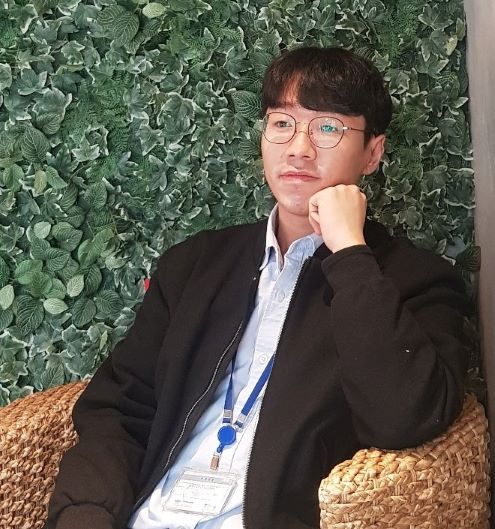
Jae Bin Park
Majoring in Psychology at McGill University, Jae Bin had the opportunity to create intervention programs for young adults that aimed to improve their mental health and also handle real-life stressors. His current research interest includes resilience and suicide and eventually, Jae Bin hopes to study and develop empirically-supported interventions programs that can help improve the resilience of individuals.
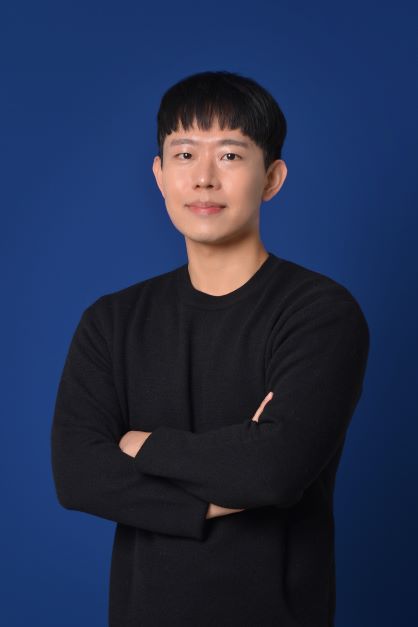
Hoyong Choi
- Memory
- Visual Perception
- Neuronal connectivity
- Neurotransmitter
- Biological approach
- Genetic analysis
Hoyong aims to understand brain network influencing cognition and decision at the level of neuronal connectivity and neurotransmission. Especially, he is interested in Memory and Visual perception. In those topics, his focus of study is which neurons or neurotransmitters have an influence on and how they connected and affect cognitive process. While at the department of brain and cognitive science, Hoyong hopes to deepen his understanding of how neuronal interaction makes high-level brain functions.

Hanna Oh
- Neuroscience
- Cognition
She has dreamed on and on of becoming a person who could contribute to the development of society by exploring the brain, the unknown area. She majored in biological science and psychology at Chonnam National University and was able to study the brain from various perspectives. She also decided to grow into a scientist with an interdisciplinary approach while participating in the study of brain disease, brain engineering, and cognitive science through undergraduate research and internships. Recently, she is interested in how learning and memory occur in the brain and she will always do research in the spirit of trying to learn new things through a master's course in the Department of Brain and Cognitive Sciences at KAIST.
Shin Seung Jae
- Neural circuit
- Consciousness
- Ion channel
Studying the brain and how humans think is a major question to all humans. Acknowledging the importance of understanding both biology and engineering to truly understand the brain, I have studied medical biology and engineering in my undergraduate years. Studying ion channels as a protein and the circuit they constitute in the brain, have led me to explore deeper into the consciousness of the mind. My interests include how humans think and process thought, exploring them with computational science and big data, including the biological mechanisms behind it. Moreover, hope to understand the human itself better through interdisciplinary studies including human history, philosophy, and psychology.

Jung, Kyungyoon
- AI
- ML
- digital healthcare
- HCI
I have a keen interest in both physical and mental well-being. Reflecting this passion, I pursued undergraduate studies in biology, psychology, and computer science.
My vision is to understand the brain through AI and enhance AI through insights from the brain. Ultimately, I aspire to contribute to the global healthcare market by leveraging AI-driven innovations.
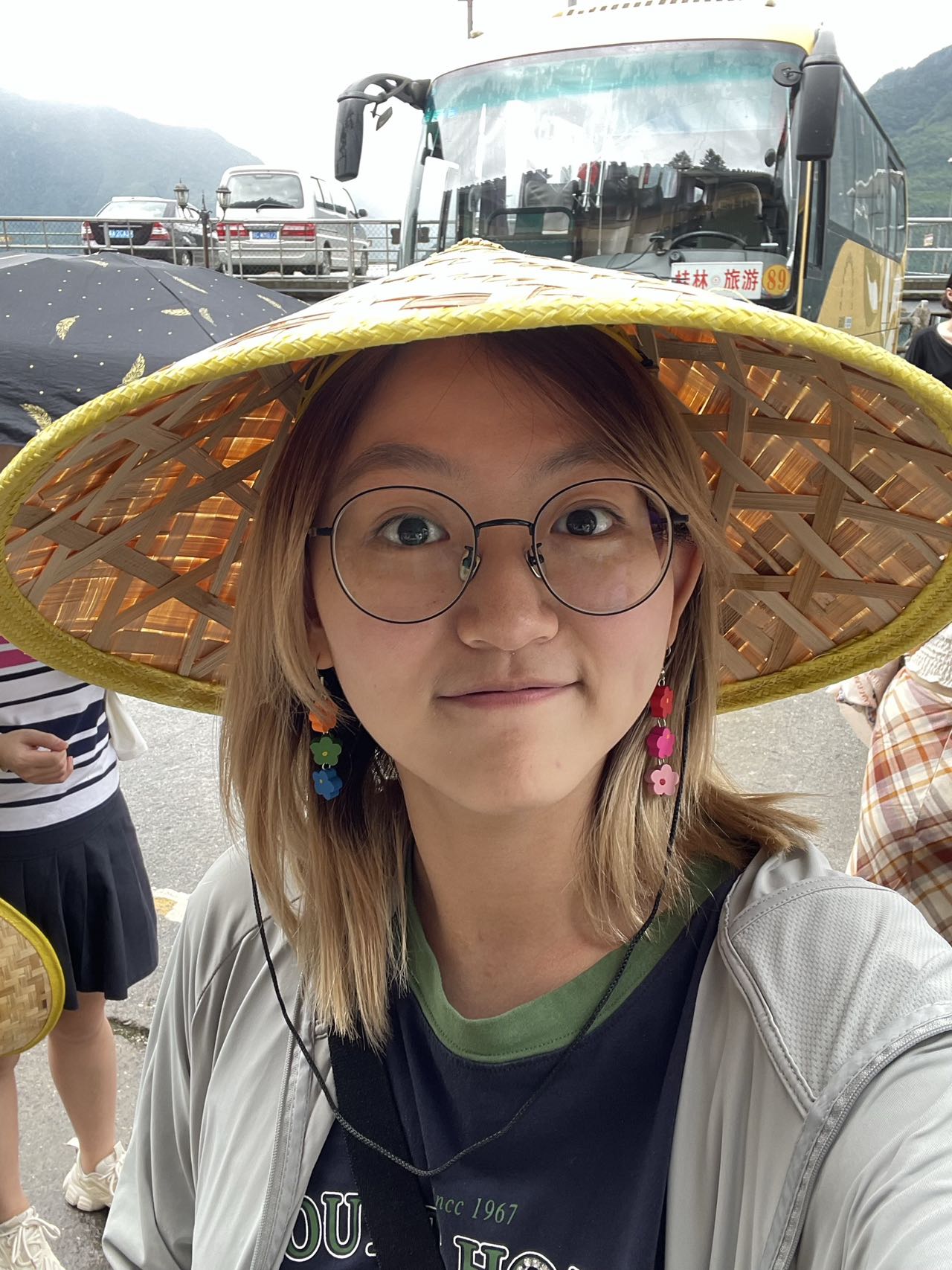
Xin Xu
- Neuroprothesis
- Electroencephalogram (EEG)
- Prediction
- Reinforcement Learning
There are two sayings that I always believe: “Technology is an extension of evolution." said by Professor Hugh Herr from the MIT Media Lab and ”If the human brain were so simple that we could understand it, we would be so simple that we couldn’t.“ by Emerson M. Pugh. These ideas fuel my curiosity about the brain and how we can partner with it to create incredible solutions.
Instreseted in neuroprothesis, I am diving into how we can tap into the brain’s hidden signals – not just for movement but for high-level cognitive control. My goal? To help amputees achieve lives that aren’t just efficient byt genuinely fulfillint. After all, the brain is complicated, but so is life – and that’s what makes the journey exciting!

Bae, Jaehyuk
- Brain-inspired AI
- Computational Neuroscience
- Metacognition
- Efficiency
- Uncertainty
I am deeply interested in the brain—the cornerstone of cognition and decision-making—which processes vast amounts of information to arrive at optimal decisions.
During my undergraduate studies, I researched mechanisms that enable organisms to perform essential survival behaviors in new environments without relying on trial and error. This work led me to focus on the similarities and fundamental differences between humans and artificial intelligence. Specifically, I became intrigued by how the brain selectively stores and utilizes information, reduces uncertainty, maximizes efficiency, and predicts and solves problems in complex situations.
In the future, I aim to explore the brain’s general principles of information processing, particularly the balance between efficiency and certainty. Furthermore, I hope to apply these uniquely human characteristics to artificial intelligence systems, designing AI capable of predicting problems and making the most suitable decisions based on context. Ultimately, my goal is to understand intelligence that continuously interacts with and grows in response to the ever-changing world.

Yoo, Hyeonseok
- Bioelectronics
- Brain-computer interface
- artificial neruon
- neural probe
- neuroprosthetics
I believe that living a healthy life without any discomfort is the ultimate goal of human beings. I believe that the current science and technology have developed to allow humans to live a healthy life, and in the future, they will further develop in the direction of guaranteeing a life free from suffering from disease. I also think that engineering is a discipline that addresses human needs and desires more economically and efficiently. So, I think that the human goal of pursuing a healthy life and the purpose of engineering to solve human needs are deeply linked to each other. For this reason, I came to the Brain & Cognitive Science to develop innovative technologies that utilize engineering to solve problems related to neuroscience and ultimately contribute to a healthier life.
My goal is to establish a platform to diagnose and treat neurological diseases by accurately detecting and analyzing external stimuli and biological signals. To this end, I am studying neuromorphic systems that mimic the functions of the brain and nervous system, and soft and flexible bioelectronics. Ultimately, I aim to contribute to the development of commercially viable brain-computer interface (BCI) technology that provides innovative solutions for the prevention, treatment, and rehabilitation of neurological diseases.
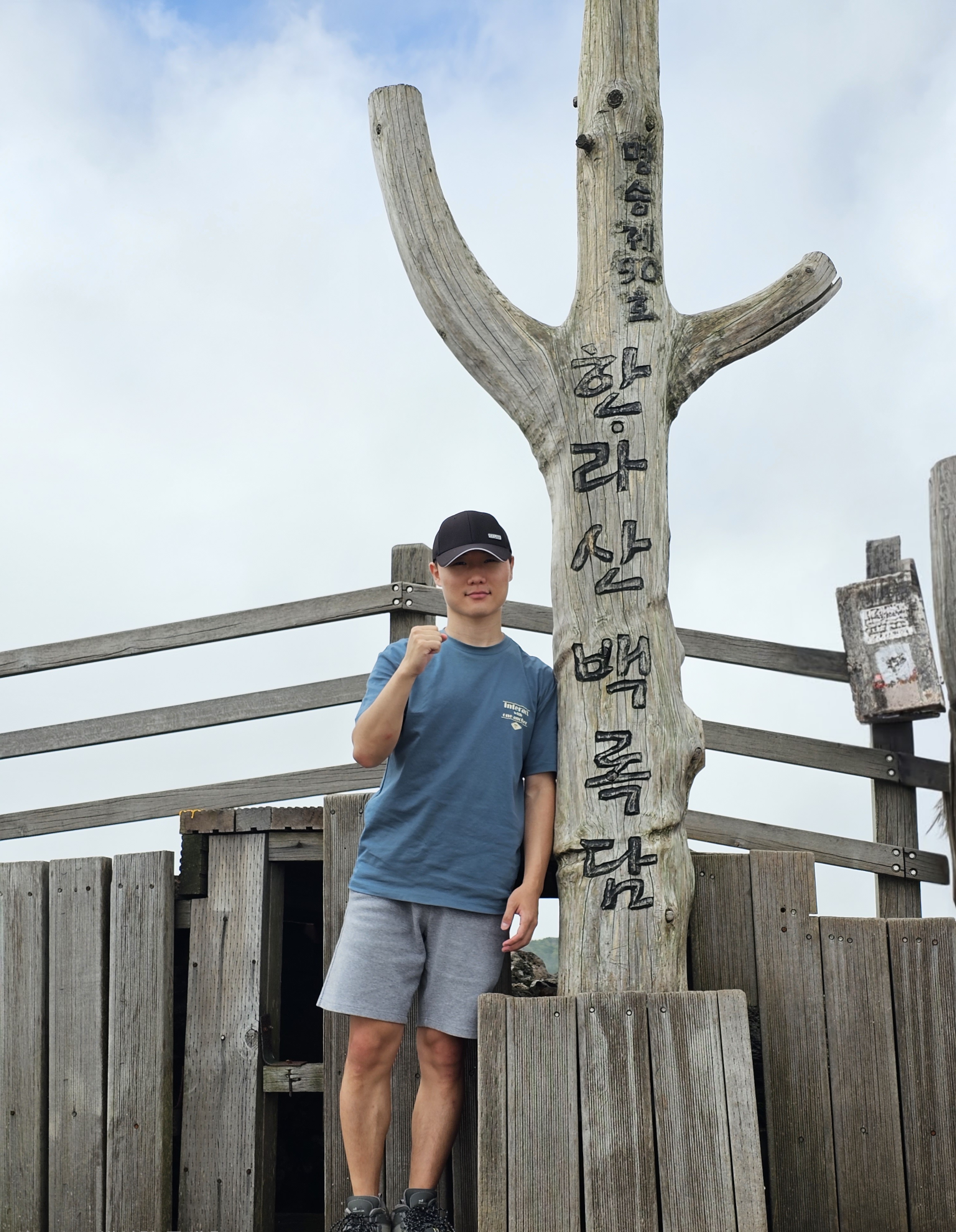
Choi, SungJu
- Alzheimer's disease
- Aging
- Nerodegernative disease
- Parkin's disease
I majored in biotechnology with the goal of contributing to solving diseases that current technology has yet to overcome. During my undergraduate years, through various seminars and major courses, I deeply reflected on the meaning of “to live humanely,” which led me to develop an interest in neurodegenerative diseases.
To achieve my dream of overcoming neurodegenerative diseases, I enrolled in the Department of Brain and Cognitive Sciences to further my studies. Moving forward, I plan to research how aging influences the onset of neurodegenerative diseases in terms of time and molecular mechanisms.
The ultimate goal of my research is to develop economical and effective new drugs that can fundamentally cure neurodegenerative diseases. Through this, I hope to contribute to creating a world where everyone can live with dignity until the very last moments of their lives.

Jung, Sangwoo
- Soft Neuromorphic electronics
- Artificial neuron & synapse
- OECT
- Neuroprosthetics
My interest in brain science began in high school when I attended a KAOS lecture on the subject.Over time, I explored various fields of neuroscience and became particularly drawn to artificial neural devices, where I could combine the neuroscience and materials engineering knowledge I gained during my undergraduate studies.My goal is to develop flexible neural devices using organic materials to create neuroprosthetics that can seamlessly replace damaged nerves without causing discomfort to users. I am especially passionate about applying these technologies to rehabilitation systems that help restore voluntary movement.
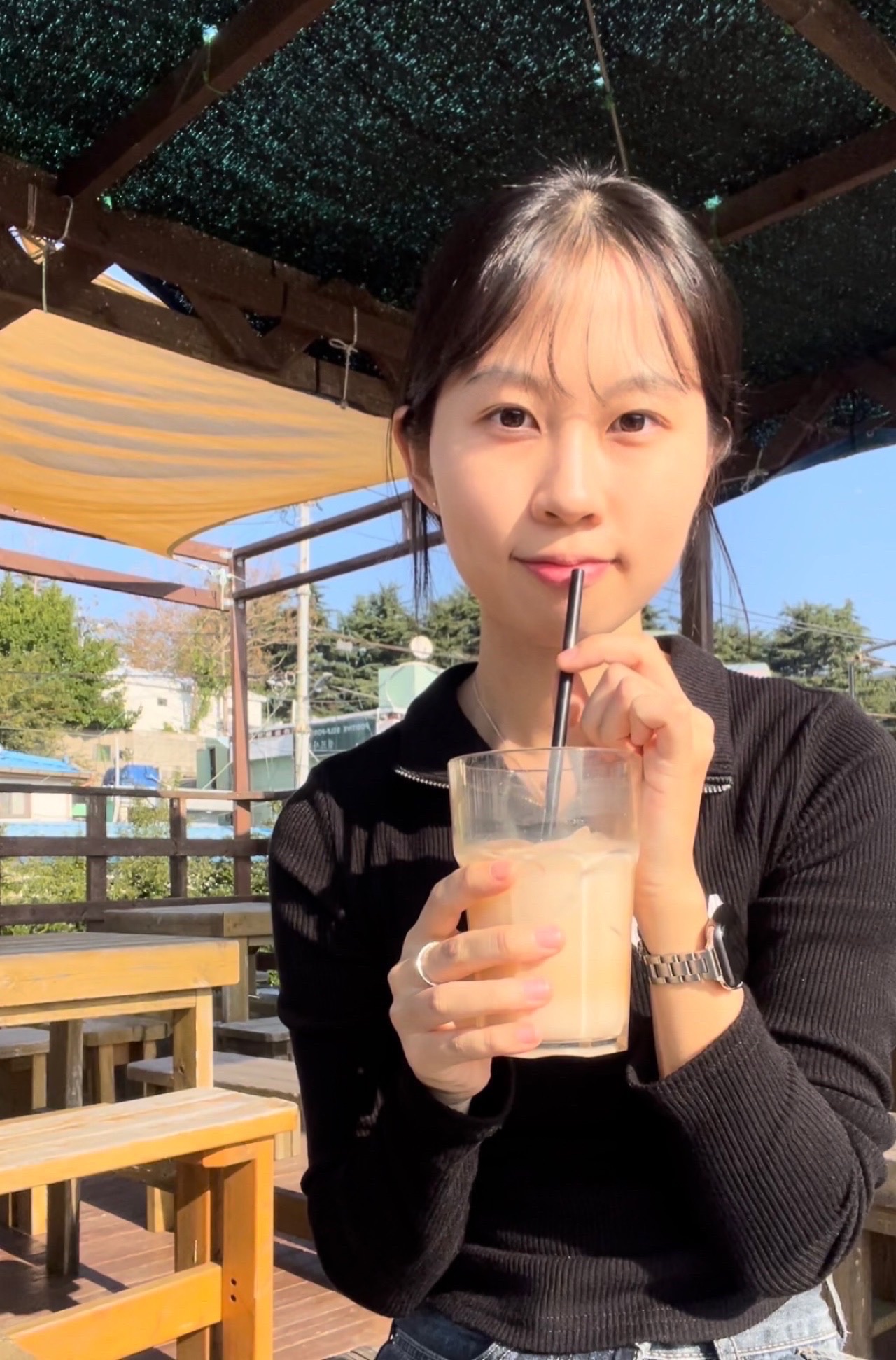
Lee, Eunseo
- neurodegenerativediseases
- glialcells
- drugdevelopment
- molecularmechanisms
- neuralregeneration
I have deep interest in the brain, which is responsible for human decision-making and cognitive abilities. I am particularly fascinated by research that aims to uncover the mechanisms of how neurons and glial cells interact within the brain to regulate the complex human organism.
My goal is to contribute to the development of complete treatments for neurodegenerative diseases such as Parkinson's and Alzheimer's. To achieve this, I plan to conduct in-depth analyses of the molecular mechanisms between brain cells and various glial cells in the brain, aiming to gain a clearer understanding of the onset and progression of these diseases. In the long term, I aspire to become a researcher who makes a positive impact on society by improving the quality of life for patients with neurodegenerative diseases, which are increasingly prevalent in our aging society, through neural regeneration or new drug development.
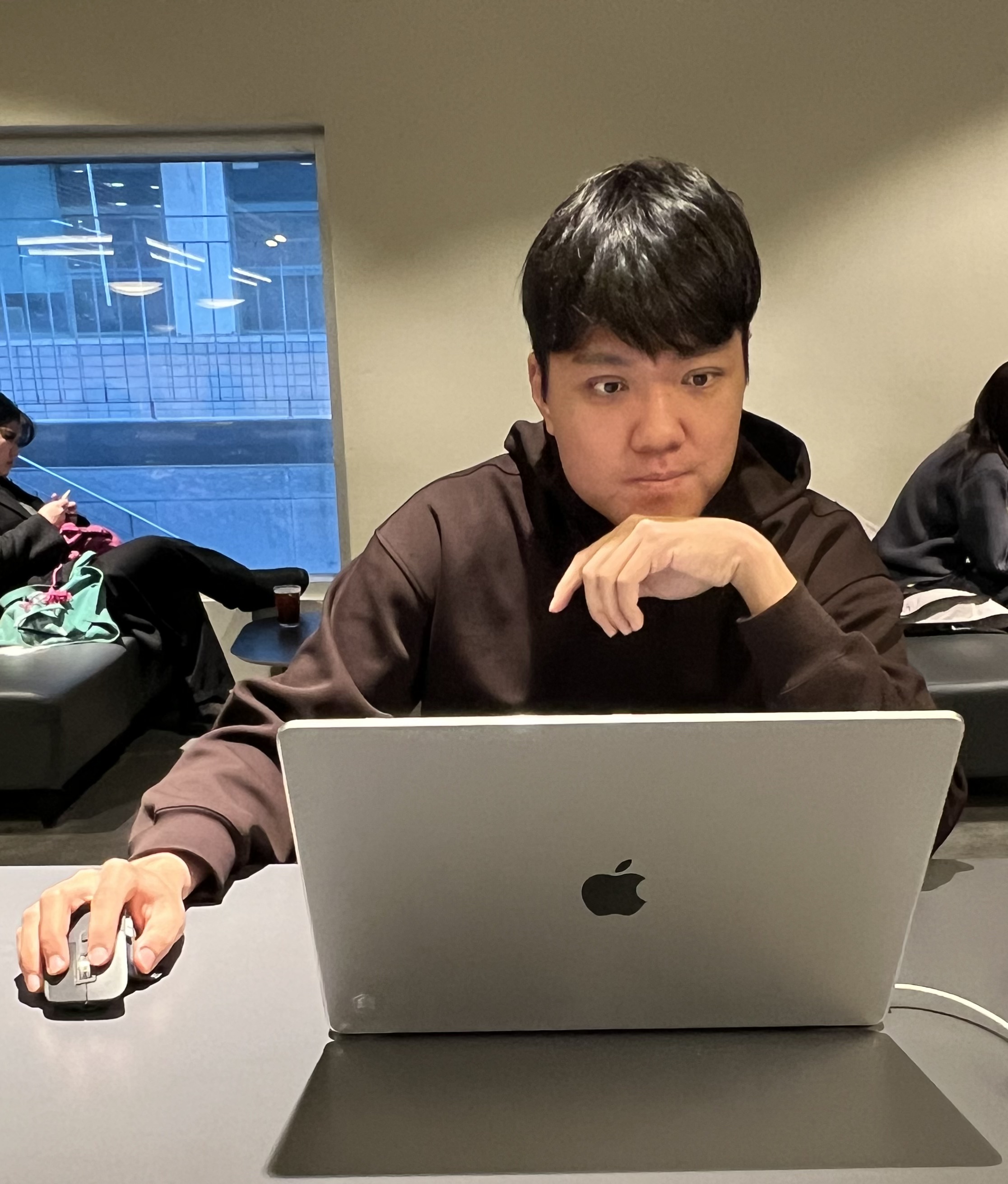
Seo, Jeongmin
- Computational Neuroscience
- Reinforcement Learning
- fMRI
- Machine Learning
During my undergraduate studies, I became fascinated by the mechanisms underlying thought processes in the human brain. The rapid advancements in artificial intelligence further ignited this interest, particularly the differences between human and machine learning. Two key ideas captivated me: the potential for applying human learning mechanisms to enhance AI, and conversely, leveraging AI to gain a deeper understanding of the brain's cognitive processes. This dual perspective inspired me to pursue a graduate program in a Brain-Machine Intelligence Lab, focusing on understanding cognition through the lens of Reinforcement Learning.
My long-term goal is to make meaningful contributions to the field of cognitive and thought process research. I envision achieving this in one of two ways: either by developing AI models that mimic the brain’s cognitive processes to address limitations in existing models, or through long-term research into brain signal processing, ultimately leading to a more profound understanding of how the brain thinks.
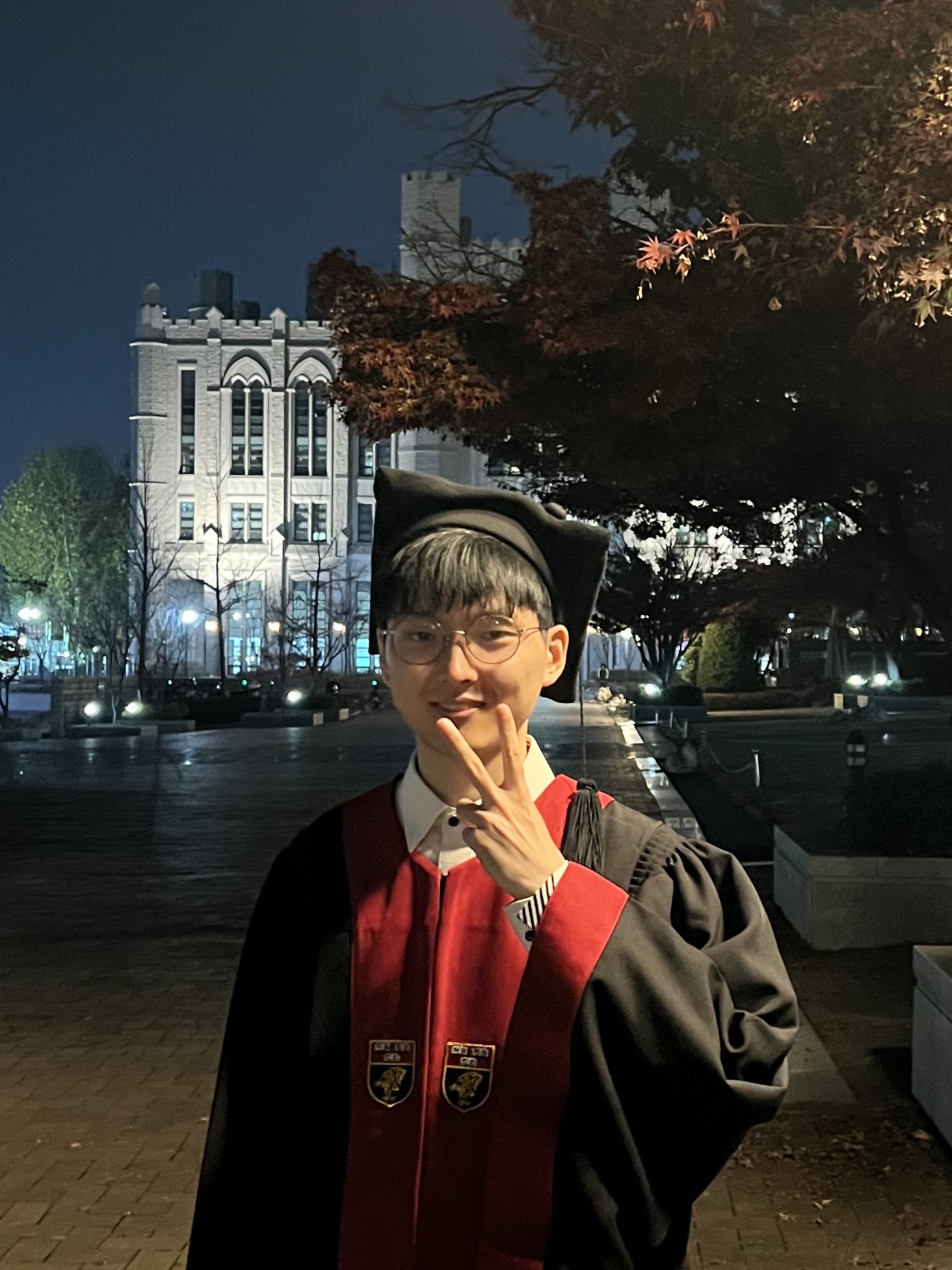
Ji sung park
- organoid
- hipsc
- Alzheimer's dementia
- neurodegenerative disease
Ji-Sung Park studied Life Sciences and Physics at Korea University. Driven by a deep curiosity about human thoughts and behavior, this led to a focus on neuroscience. Researching the brain using animal models like mice differs from studying the human brain, and non-invasive methods for human brain research are often restricted due to ethical concerns. Therefore, organoid research seemed like a breakthrough, sparking an interest in this field.
By utilizing hiPSCs, the goal is to study neurodegenerative diseases such as Alzheimer's dementiaand develop bio-computers to further explore human intelligence and brain functions. Ultimately, this research aims to overcome brain disorders and contribute to building a better society.
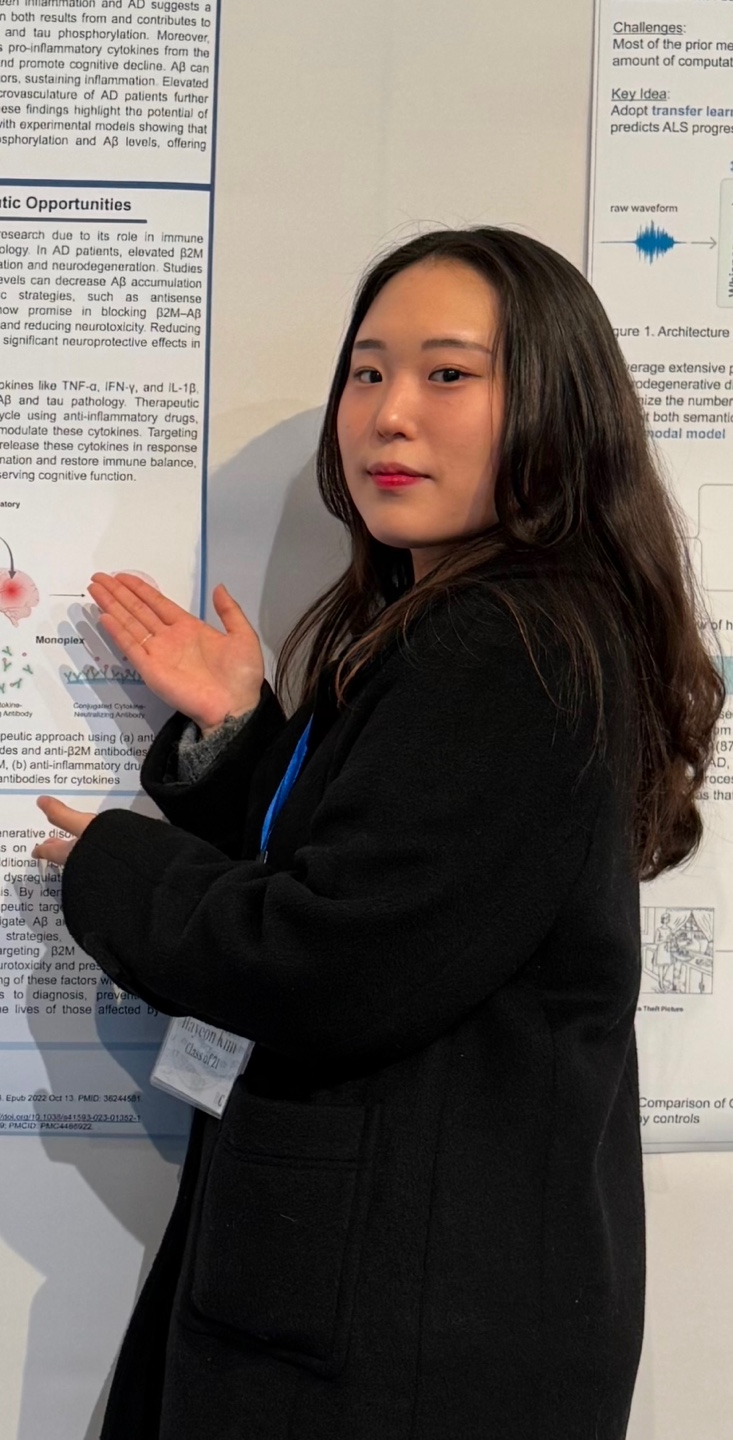
Kim, Hayeon
- neurodegenerative disease
- aging
- cognition
- neuroscience
- treatment development
Hayeon is deeply interested in developing treatments for neurodegenerative diseases. During her undergraduate studies, she conducted research on Alzheimer’s disease treatments and the impact of glycemic variability on Alzheimer’s disease, seeking to understand the mechanisms of neurodegenerative diseases and potential therapeutic strategies. She aspires to join Professor Choi’s lab to work on developing treatments for brain diseases using organoids. Her ultimate goal is to develop pharmaceuticals that achieve clinical approval in the future.

Kim, Zion
- BCI
- Brain Wave
- EEG
- Medical Engineering
- Robotics
- Brain Disease
Dream to be someone who can provide new opportunities to people with disabilities. I entered the Department of Mechanical Engineering at KAIST with the dream of becoming a biomedical engineer, and double-majored in Bio&Brain Engineering, studying system design and data processing. During my undergraduate studies, I participated in an undergraduate research project with Professor Jaeseung Jeong to “make a robotic prosthetic hand that can be controlled by EEG for amputees.” I became convinced that I could open up more diverse opportunities for more people through the brain, and so I entered graduate school in the Department of Brain and Cognitive Sciences.
I am currently working as a team leader for the same project and am working hard to make a BCI robotic prosthetic hand that is more powerful, cheaper, and convenient. I am also interested in degenerative brain diseases, and researching ways to suppress the occurrence and progression of diseases by analyzing the brain waves of various patients through appropriate modeling and data processing.
I am working hard with the goal, of one day founding a company that contributes to the development of society and humanity based on the brain technology, also becoming an educator who nurtures future generations, and a role model who can inspire dreams in junior researchers.
Han, Ain
- neuropolitics
- political judgment
- political choice
- affective polarization
People's differences spark my curiosity. While studying political science and economics, I observed how societies are shaped by individuals with differing, sometimes extremely divergent, perspectives on the same events and issues. I wanted to understand why we think so differently, which led me to pursue a degree in brain and cognitive sciences.
I aim to explore the relationship between cognitive mechanisms and political decision-making. Through my research, I hope to gain a deeper understanding of the political decision-making process and contribute to building a better society.
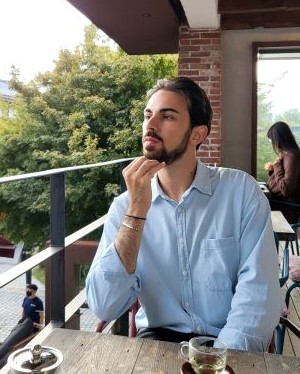
Andrea Piazzola
- Genetics
- Behavioral Neuroscience
During my master studies In Verona I acquired general knowledge regarding the molecular techniques to be used to do research in the medical biology. My interests lead me to pursue an internship in a Neuroscience laboratory here in KAIST and from that moment my path continued until now with the PhD course from which I wish I will be able to achieve some major breakthrough and publications. My focus will revolve around the emergent technology of Antisense Oligonucleotide and I hope that through my testing, it will be possible to prove that it can be used as a tool to improve cognitive functions such as working memory

ELRHARBI-FLEURY, Yannis
- Decision-making
- Machine Learning
- Evolutionary Algorithms
- Robotics
- Meta-learning
- Diversity
- Open-ended learning
I completed a bachelor’s degree in Mathematics at the University of Paris and pursued my studies with a master’s degree in AI at Sorbonne University in France. My research was conducted at the ISIR lab, where I specialized in multi-criteria decision making and stochastic optimization. I worked on developing cognitive functions for robotic hand manipulation in open-ended learning contexts.
Having cooperated closely with neuroscientists during this time, I wanted to explore more fundamental aspects of cognition. I therefore joined the Laboratory for Brain and Machine Intelligence at KAIST, where I am currently a Ph.D. candidate under the supervision of Professor Sang Wan Lee.
We seek to understand how the organization of biological and artificial neural networks relate to their capacity for certain behaviors. We are developing a novel mathematical framework that aims to explain the emergence of structure, in the context of differing functional pressures.
Ultimately, my dream for neuroscience is that, much like Asimov imagined Psychohistory, we build a theory of the mind that predicts human behavior through our potential for creativity and freedom.
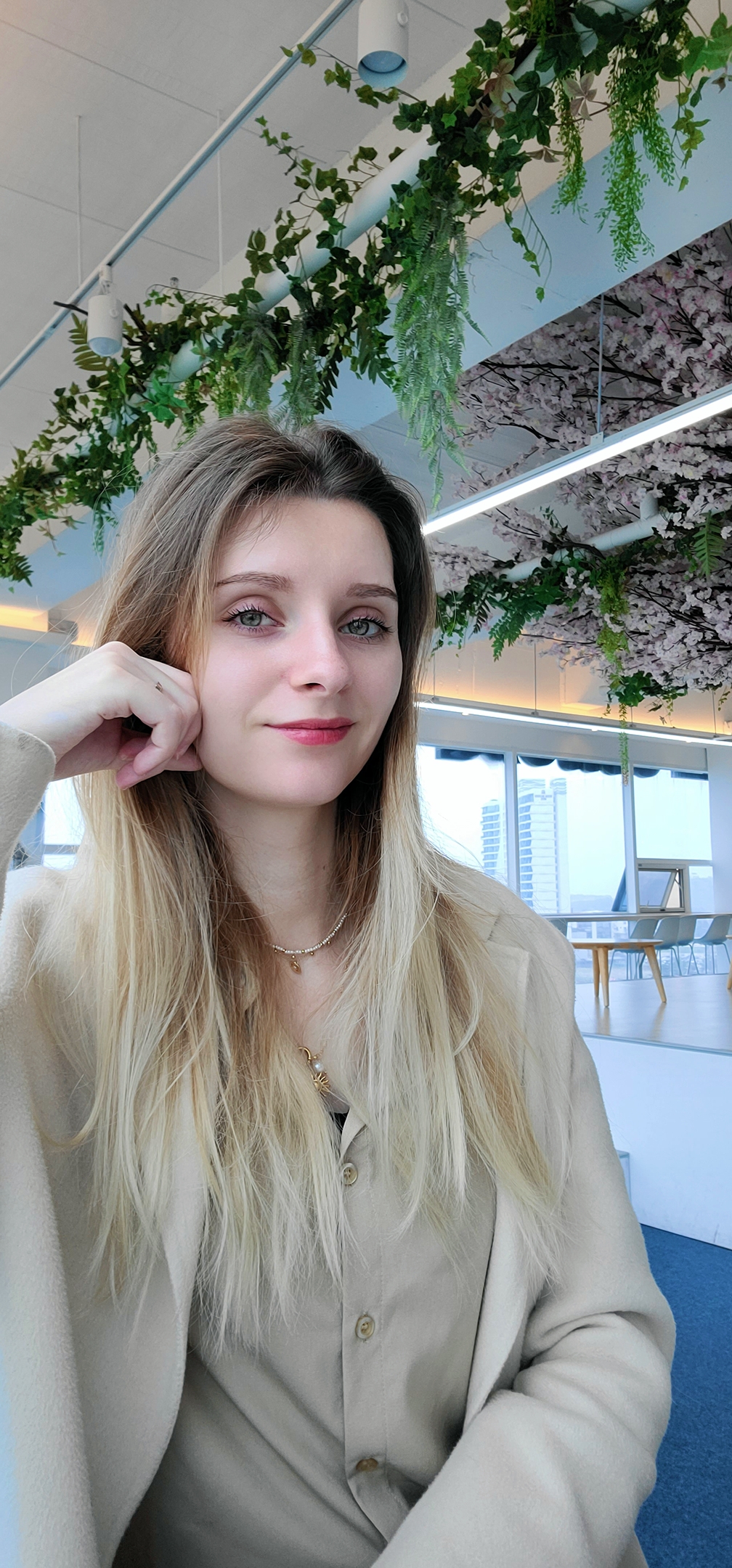
Nathalie van der Meeren
- Neurological disorders
- Behavioral Neuroscience
- Neuronal Electrophysiology
- Neural Network
- Circuit-based mechanism
I hold a Bachelor's degree in Life Sciences from the Rotterdam University of Applied Sciences in the Netherlands. Throughout my undergraduate years, I engaged in two internships that significantly influenced my academic interest. The first internships was at a Dutch plant-research company, where I worked in the field of microbiology, specifically developing detection methods for plant pathogens. However, I knew my true interests were withing the field of neuroscience. Consequently, I excitedly engaged in an 8-month internship at KAIST in Korea, where I focused on glia-research. During this period I worked on the mechanisms of synapse elimination through the induction of stress during the juvenile period in mice, to induce depression-like behavior. I greatly enjoyed my time in Korea and at KAIST, thus, I wanted to continue my studies here and continued by entering the Integrated MS/Ph.D. graduate course in the Biological Sciences Department. Over the initial three years of my graduate studies, my focus lay on sensory processing, particularly the mechanism of sensorimotor gating and its disruption in Schizophrenia. This period exposed me to a wide array of techniques, from neuronal electrophysiological recordings to Electromyography (EMG) measurements, PPI behavioral experiments, and, neural optogenetic manipulation. My research interests subsequently evolved, prompting a shift to the lab of Professor Kim Daesoo within the Brain and Cognitive Sciences Department. Here, my sights are set on a fresh start, equipped with innovative techniques, I aspire to contribute meaningful insights to the captivating field of neuroscience.

Sandoval, Samuel
- Brain-body interactions
- Cognition
- Neuro-ethology
- Consciousness
I am a psychologist with a Master's in Cognitive Neuroscience from Taipei Medical University in Taiwan. My research has centred on investigating the complex relationship between the brain and body, particularly during voluntary actions. I’ve always been fascinated by the biology underpinnings of behaviour and cognition, how they compared across species and influence our identity.
At KAIST, I am excited to expand my research into interdisciplinary avenues, bridging neuroscience with other fields to gain deeper insights into the biological basis of behavior. My current focus is on exploring how brain-body interactions might influence self-consciousness.
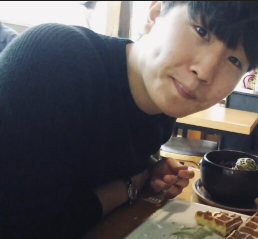
Young Ho Kang
- Human-AI Value Alignment Problem
- Intelligent Control
- Brain-Computer Interface
- Brain-Inspired AI
- Reinforcement Learning
- State Inference
Young is involved with designing a system that optimizes control degrees of freedom for the human-machine interaction. That is, for each given circumstance, the system being able to make rigorous inferences on the user’s desiderata with high degree of precision. Concurrently, it should also minimize the user’s burden of communicating with the system via introducing an intuitive and ergonomic interface. He believes that solid corner stones of such a system can be found from disciplines such as cognitive neuroscience and machine learning. By investigating a computational model of cognitive processes of interest built based on neural and/or behavioral data, latent variables of the model that truly reflect key aspects of the human’s cognitive status would reveal themselves. Consequently, he says, the human-like intelligent machine will then be able to grasp the user’s intention and/or objectives from which a demanding sequence of actions can be generated on behalf of the user. Overall, this will allow the machine to be truly aligned with human values; this will be one promising solution for the human-AI value alignment problem to which Young is currently dedicated. Ultimately, he anticipates, and desires to contribute to, such system to shift the extent to which each individual’s spacetime utilization in an exponential manner, whilst maintaining its economical efficiency.
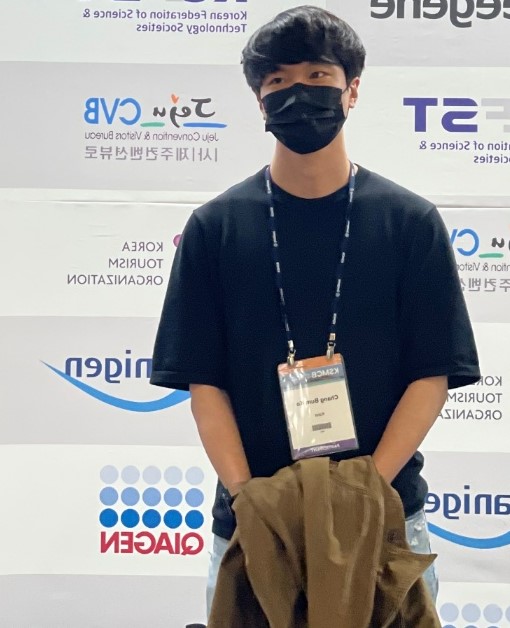
Chang Ko
- Behavioral Neuroscience
- Learning
- Motion
Currently a Ph.D candidate at KAIST, my studies involve the role of M2 in a naturalistic hunting environment. I firmly believe that naturalistic settings reveal more about behavior and the brain mechanisms behind it. With data and behavior being more complex in naturalistic settings, the importance of its analysis also led me to do some coding and data analysis in my free time, which I enjoy very much.

Minji Kim
- synapse
- brain disease
- ASD
- abnormal behavior
- brain function
I graduated from the Department of Biological Sciences at KAIST and joined the Department of Brain and Cognitive Sciences to understand the brain deeply. I am interested in finding the causes and resolving the problems in the brain. Now, I am studying how the ASD-risk gene mutation causes ASD behavior by using molecular biology, electrophysiology, and behavior analysis. Through this course, I want to become a scientist who can help people with various brain diseases by understanding and analyzing the brain.
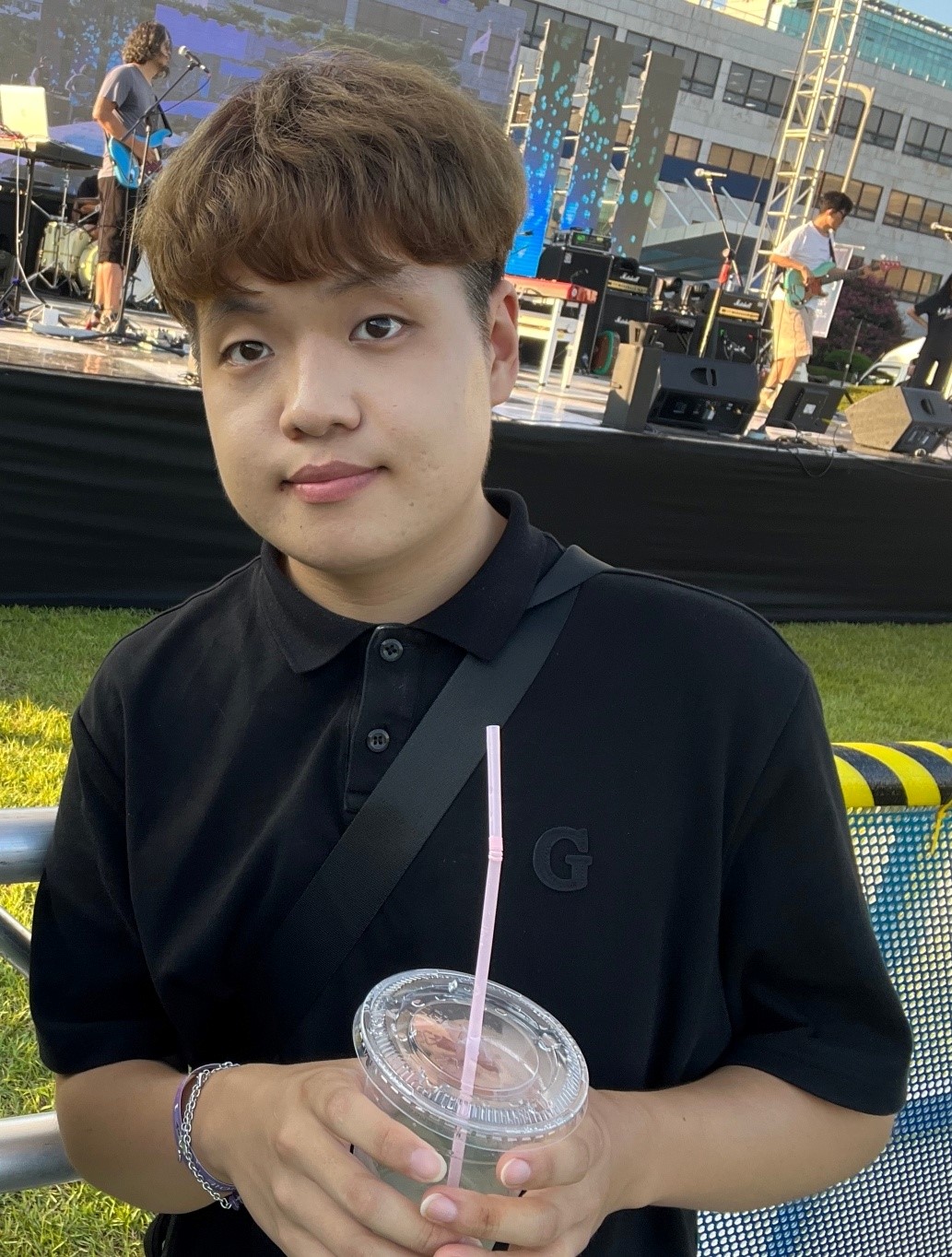
Baekho Kim
- Affective Science
- Cognitive Neuroscience
- Social Psychology
- Emotion differentiation
#Affective Science #Cognitive Neuroscience #Social Psychology #Emotion differentiation
Baekho Kim has a comprehensive interest in the mechanisms and characteristics of affective science, such as individual subjective feelings, emotions, and moods. In particular, He would like to study the process by which emotions are composed, such as expression, regulation, sharing, and cognition of emotions, and the process by which those are expressed and accepted by people. By interpreting physiological indicators like EEG and ECG from a social psychological perspective, he would like to study how individuals differentiate and accept emotions, and how those processes affect their quality of life and health. Ultimately, he wants to reveal how each person can understand and utilize their emotions in a healthy way.
Sejin Kim
- Cognitive load
- Working memory
- fMRI
Sejin Kim is currently progressing doctoral degree after obtaining a master’s degree from KAIST. During his master’s program, he studied the difference responses in brain regions that the human brain utilizes for memory function depending on the type of memory informations. This experience led him to pursue an understanding of the mechanisms behind the expression of cognitive and memory abilities. Therefore, he decided to enroll a doctoral course in the department of cognitive neuroscience.

Kim, Ye Jin
- Systems neuroscience
- Neural circuits
- Visual perception
- Conscious perception
It struck me during my undergraduate studies that we never truly experience the physical world around us except through the neural signals entering our brain. Throughout my bachelor’s at the Bio and Brain Engineering at KAIST, I studied how neural signals can be measured or modulated in the brain. At the department of Brain Cognitive Sciences, I aim to better understand what these neural signals represent, and how perceptual experiences arise from them. I am currently at the Sensory Processing Lab investigating the perceptual component of visual behavioral tasks using invasive electrophysiology in mice. Ultimately, I wish to dissect the complexity of our experiences, thereby allowing us to go beyond the biolimits of our percepts.
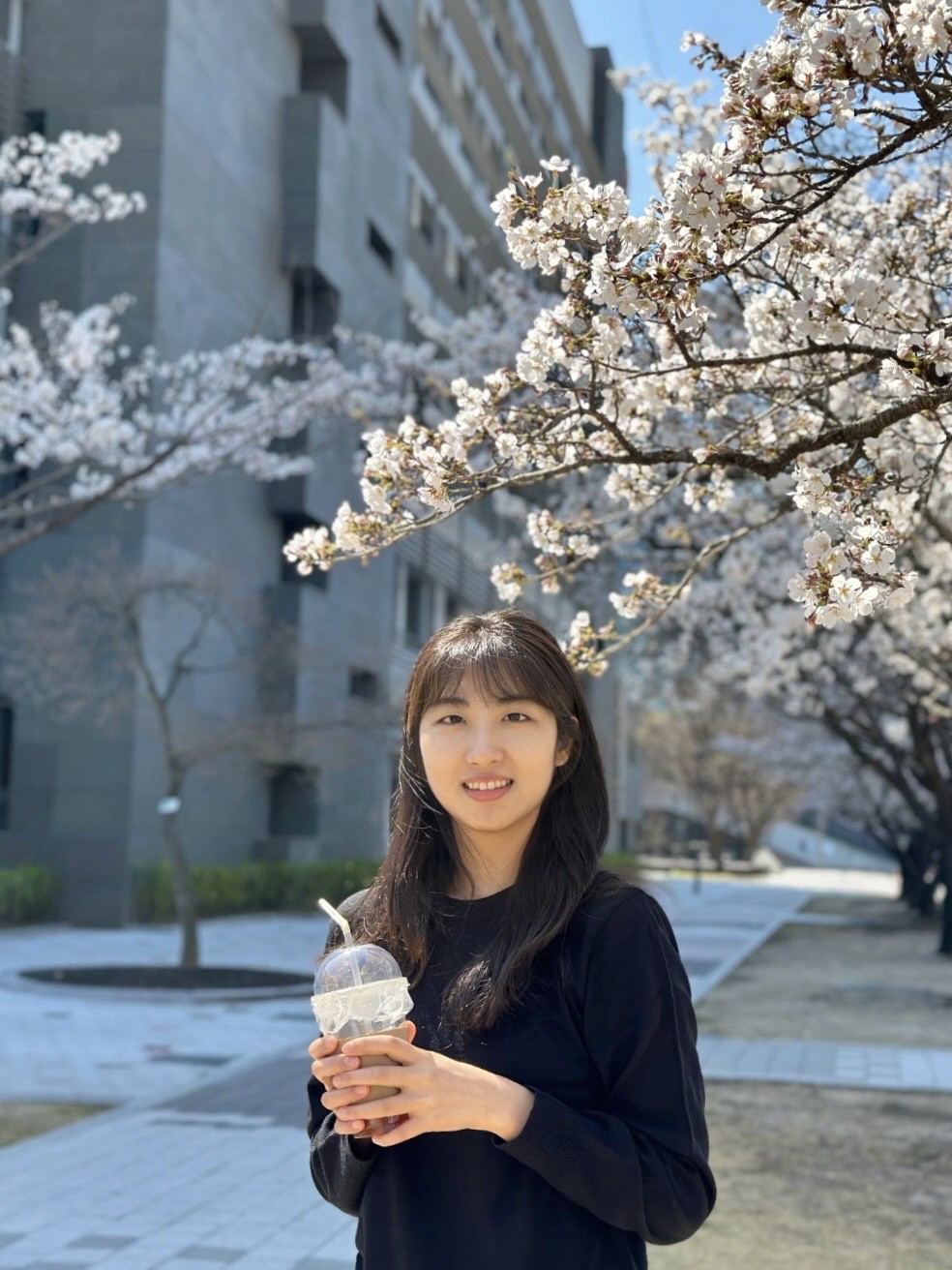
Kim Hakyeong
- Brain-Body
- Neural circuit
- Instinctive behavior
- Behavior neurosceince
- Neural disorder
Kim Ha-kyeong delves into understanding the interplay between the brain and body in shaping behavior, utilizing a biological background to explore the connection between neural processes and instinctive behaviors.
Presently ongoing research focuses on the relationship between exercise and stress responses. What drives both humans and animals towards physical activity? To unravel this, a comprehensive array of tools such as optogenetics, photometry, electromyography, and behavioral experimentation are applied, aiming to cast a novel light on the physiological and psychological dimensions of the brain-body connection.
Furthermore, the research extend to illuminating the relationship between mental disorders and instinctive behaviors. These insights are intended to contribute to the advancement of human health and happiness.
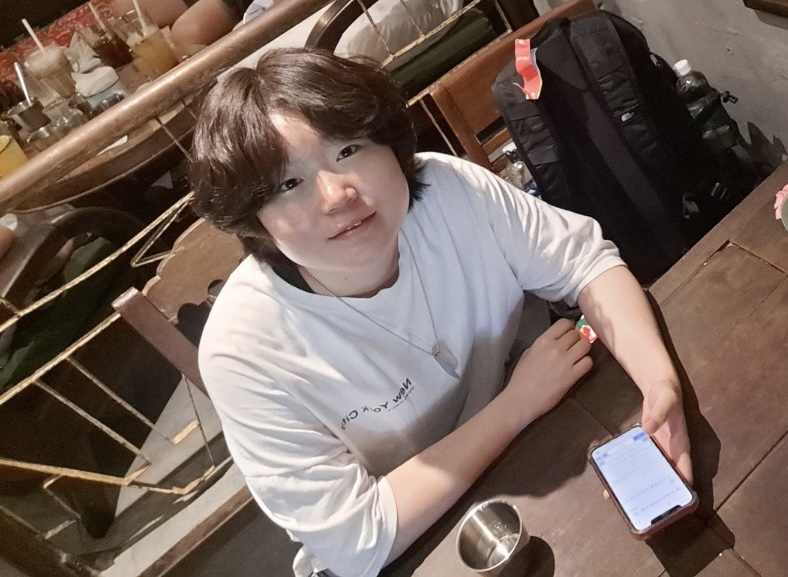
Na, SaeYeon
- internal states
- theoretical neuroscience
- neural circuit
- neural cell type
- deep brain
- evolution
Changing my major interest from experimental to theoretical neuroscience, I chose BCS for the environment which I can use theories and methods from both sides. Hopefully I can come up with more general hypotheses from these sources. Currently, my focus is on how neurotransmitters and neuropeptides can change the neural circuit and network dynamics, and consequently the internal states. My future goal is to study the evolutionary history and its adaptive function of the neural system that controls internal states.

Jungyoung Park
- Emotional disorder
- Depression
- Neural circuit
- Neuromodulator
Jungyoung Park studied regulation of behavioral responses to stress by microRNA in her master's degree. In particular, depressive like behaviors and cognitive dysfunction are recovered when a specific microRNA is overexpressed in the mouse mPFC following MDD induced stress. During her research, she was wondering what neural circuits induce depressive like behaviors. And now she is going to find an answer to it. She wants to study the neural circuits and neuromodulators in behaviors of emotional disorders such as depression and anxiety at the Cognitive Neural Network Lab. After a doctor's degree, she extends her research area to diagnostic kit development and enters the market making use of her diagnostic research experiences. She wants to contribute to improving the accuracy of diagnosis, ultimately reducing the social cost of mental disorders and making a better world.

Minseo Bang
- Brain Computer Interface
- Brain Stimulation
Hello, I'm Minseo Bang, majored Bio and Brain Engineering at KAIST. During my undergraduate studies, I gained experience in various fields through a variety of courses and internships, which led to my growing interest in applying engineering to brain-machine interfaces, particularly in the context of cognitive neuroscience. I'm particularly interested in research aimed at reducing the gap between human cognition and the information decoded from brainwaves and brain imaging. In graduate school, I aspire to conduct research that utilizes brainwaves and bio-signals to create brain-machine interfaces that can transmit information more closely resembling human thought. Additionally, I want to develop interfaces that can deliver and generate sensations tailored to individual preferences through electromagnetic stimulation.
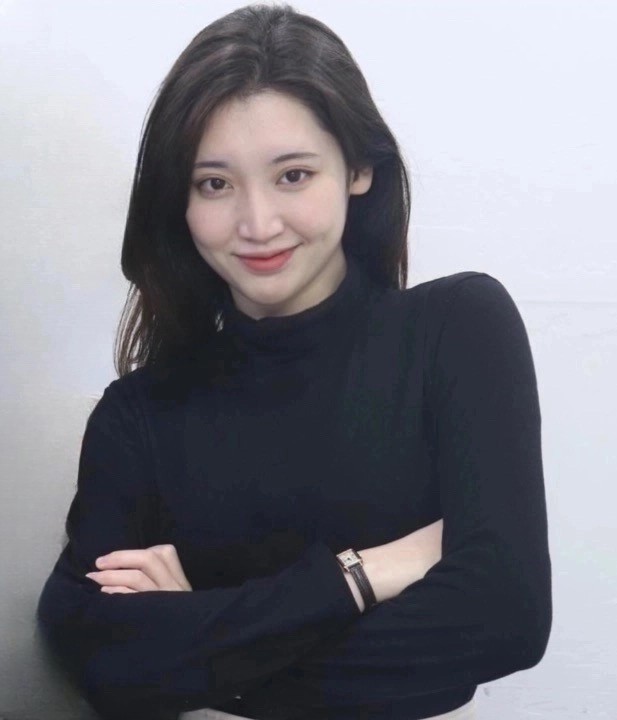
Yeeun Seo
- BCI
- Neural Prostheses
- NCD rehabilitation
- Vision
- Computational Modeling
I am interested in the engineering approaches to treating cognitive or sensory disorders. While studying psychology, life sciences, and computer engineering at Sogang University, I became interested in cognitive neurological disorders, their neurophysiological mechanisms, and computational neural modeling. Therefore, starting with deep stimulation and visual prostheses, I would like to broaden my understanding of BCI and contribute to developing prosthetic technologies applicable to rehabilitation.

SeungYoon Oh
- depression
- suicide ideation
- suicide prevention
- mood disorders
- mental disorders
SeungYoon attained her undergraduate degree in Psychology and Neuroscience at the University of Glasgow. During her studies, she developed an interest about the reasons that lead individuals to comtemplate suicide, particularly in relation to mental disorders. She decided to join the Department of Brain and Cognitive Sciences at KAIST with the intention of contributing to the treatment of significant factors that lead to suicide, such as depression, and conducting research dedicated to suicide prevention. While it takes considerable time for an individual to reach the point of contemplating suicide, identifying the underlying causes and implementing effective prevention measures is uneasy. SeungYoon's ultimate goal is to conduct research that aims to prevent suicides caused by psychological factors and facilitate the recovery of mental well-being, enabling individuals to experiecne the joys of life once again.
Oh, Hong Suk
- neuropolitics
- political neuroscience
- political decision making
- political polarization
- political emotion
Hong Suk Oh mainly researches human decision making in political context. He is interested in revealing neural mechanism of political action, political emotions, and how people process political information. Before pursing graduate course, Hong Suk majored in political science and worked as a staff reporter at a media company. In future he hopes to mitigate social conflicts by providing scientifically grounded evidence and understanding.
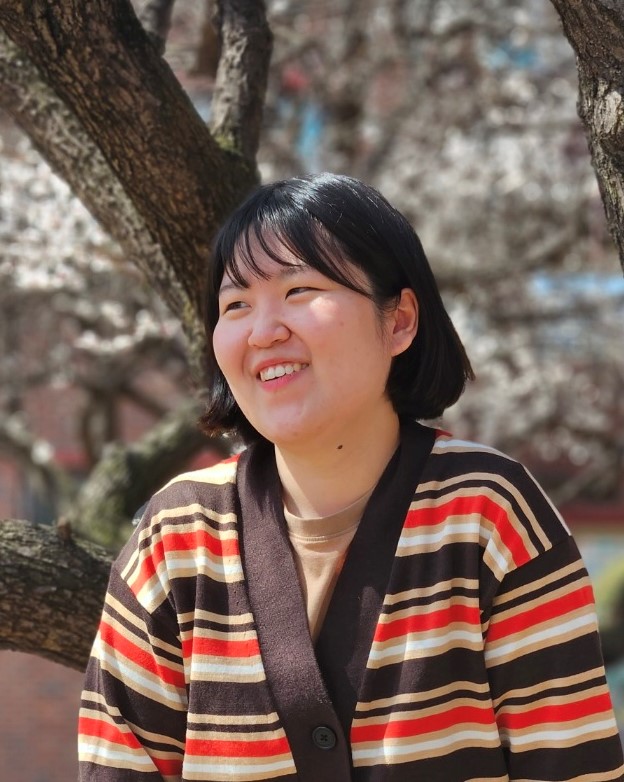
Chanmee Ock
Chanmee majored Biomedical Engineering. She studied various biomedical signals (e.g., EEG, MEG, EOG), considering them as an electrical signal. Besides, she has implemented measurement and analysis of biomedical signal. ‘User-customized Health Program’ was part of it. The Program recognizes 5 different workouts and adjusts session by current heart rate. From these experiences, she got interested in using biomedical signals in human research. She is especially interested in a positive feeling aroused from senses. Thus, she is going to study the feeling constructed from various sensory elements.

You, Daeun
- Brain diseases
- Parkinson
- Dementia
- Addiction
1. Academic reasons or reasons for coming to the Department of Brain Cognitive Science.
During my studies in Health Psychology at University College London, I developed a strong interest in understanding the mechanisms behind various brain diseases such as dementia and addiction, and in finding fundamental solutions for their treatment
2. Current dissertation topic and brief contents
Currently, my research focuses on developing the optimal environment for culturing human-like brain cells in vitro, with the goal of using these cells to create innovative platforms for disease modeling and drug screening.
3. a future dream or vision
Ultimately, my aim is to develop a safe and effective personalized treatment platform for brain diseases that is accessible to a wide range of people

Yeeun Ryoo
- Computational Neuroscience
- Brain-Inspired AI
- Memory
- Emotion
During my master's degree, I directly examined the specific impact of prefrontal regulation on the recognition of facial emotions using transcranial magnetic stimulation (TMS). Our results showed that inhibition of the dorsal lateral prefrontal cortex (dlPFC) significantly enhanced individuals’ ability to regulate emotional biases when recognizing ambiguous facial expressions. However, I envisioned that if we could regulate cognitive functions through learning based on computational models rather than direct brain stimulation, this could not only revolutionize future cognitive behavioral therapies but also open up possibilities for various engineering applications.
Moving forward, I aim to contribute to advancing the field of psychiatry by understanding the mechanisms of the human brain and developing AI models based on computational models to regulate cognitive functions at the behavioral level. This could provide engineering solutions for the future development of psychiatry and an enhancement in the quality of life. This approach is likely to be particularly beneficial for the diagnosis and treatment of conditions like Alzheimer's disease and other mental disorders. Additionally, its ease of application can significantly impact and ripple effect across various engineering domains such as human-robot interaction (HRI), smart education, and human resources (HR).
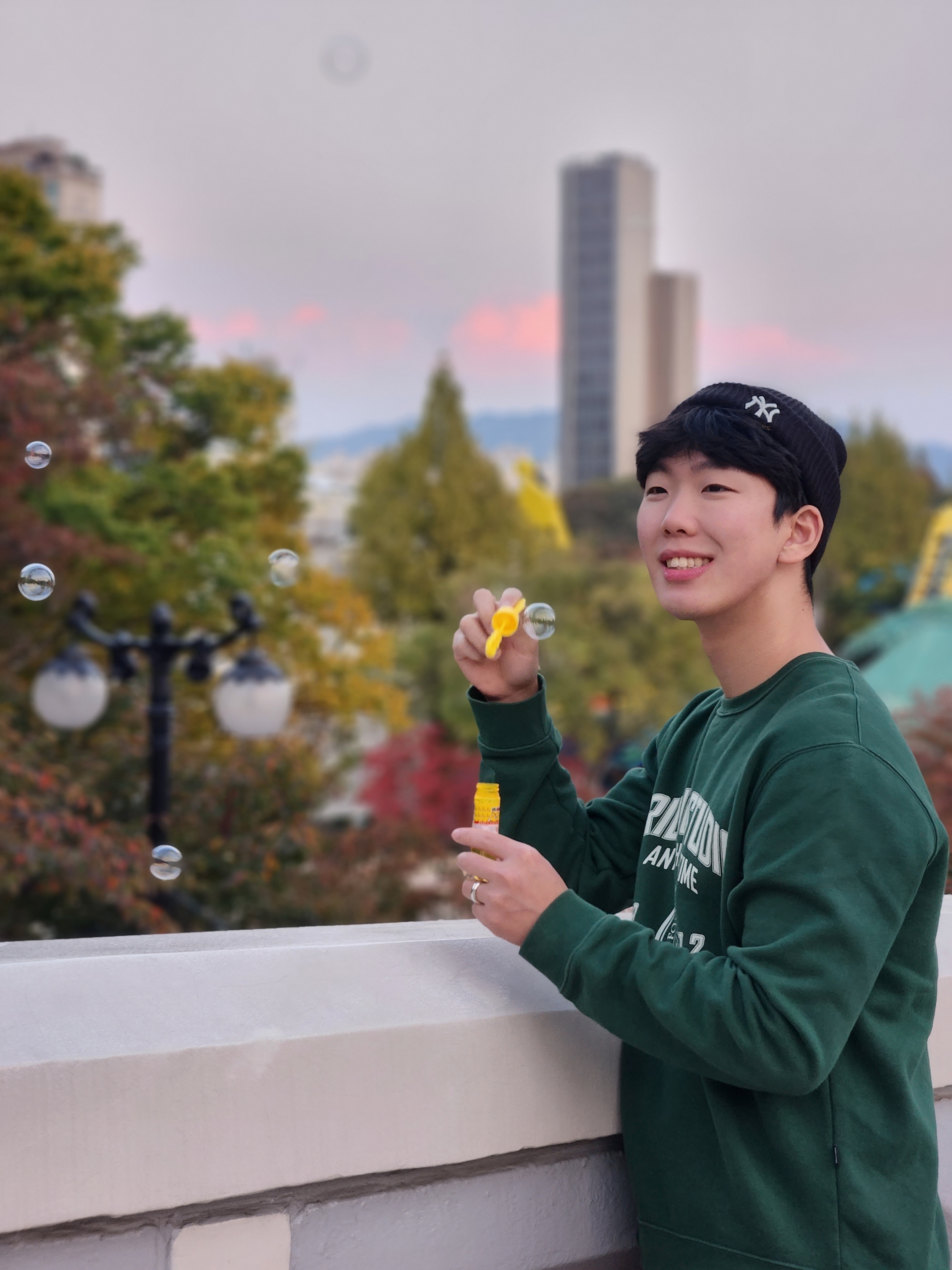
Sugeun Yun
- Consciousness
- Sensation
- Perception
- Neural Network
Acheiving Bachelor’s Degree in Life science and Psychology in Korea University, I got interested in the way that our brain work. Major curiosity was on how brain process sensory information and let us have conscious experience about the information. To study about that, I joined Brain & Cognitive Science department. Collaborating with Center for Cognition and Sociality in Institute for Basic Science, I aim to conduct research on how brain is involved in people having consicous experience of external stimulus. Ultimate goal is to solve the Hard problem of Consciousness.
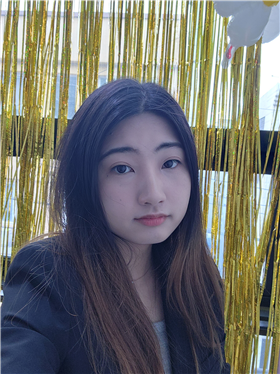
Lee, Seyeon
- Consciousness
- PCI
- Brain-body Interaction
- Interspecies
My personal academic interest in Neurocognitive Science started with a simple question 'What makes human human?' I studied brain and cognitive science and biology in my undergraduate and I enter KAIST with hopes of answering philosophical questions with scientific methods. I am now studying under Prof. Park and working on consciousness. I wish to be able to compare consciousness between various species, and is working on the project using methods like PCI that can measure consciousness quantatively.
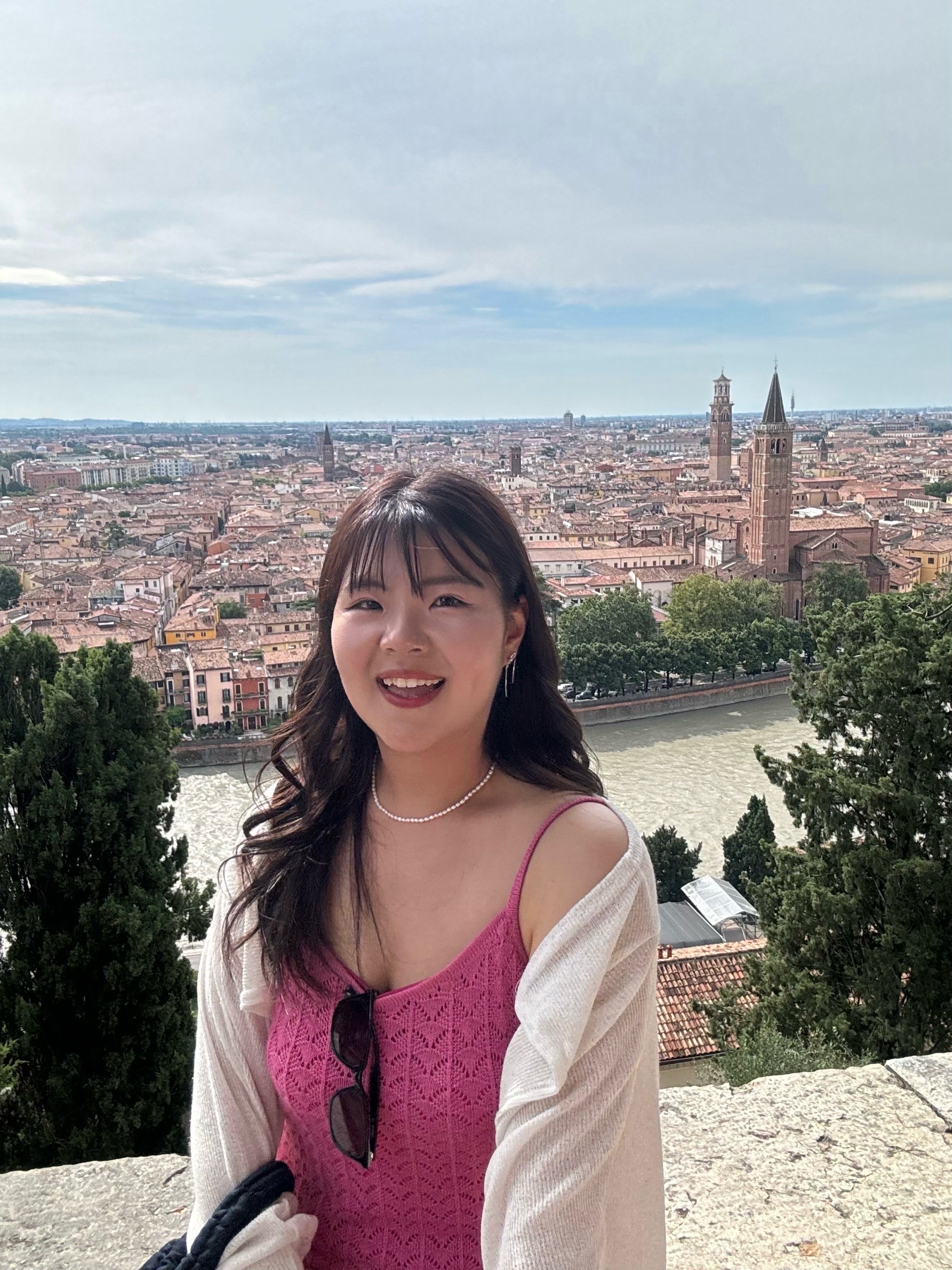
Lee, Seunghyun
- Rejuvenation
- Brain aging
- Neurodegenerative disorders
- Epigenetics
I majored in Sociology and Psychology at Korea University, dreaming of making a society where people can enjoy their lives. During my degree course, I realized that aging has a profound impact on individual cognitive functions and quality of life. Motivated by a desire to understand and address this issue more fundamentally, I pursued further studies in Brain and Cognitive Sciences. My goal is to identify the causes of aging in the brain, the core of human cognitive function, and explore ways to reprogram aging processes. Through this research, I aim to find solutions to aging-related issues such as neurodegenerative disorders. Ultimately, I hope to contribute to making a world where aging is not something to be feared.
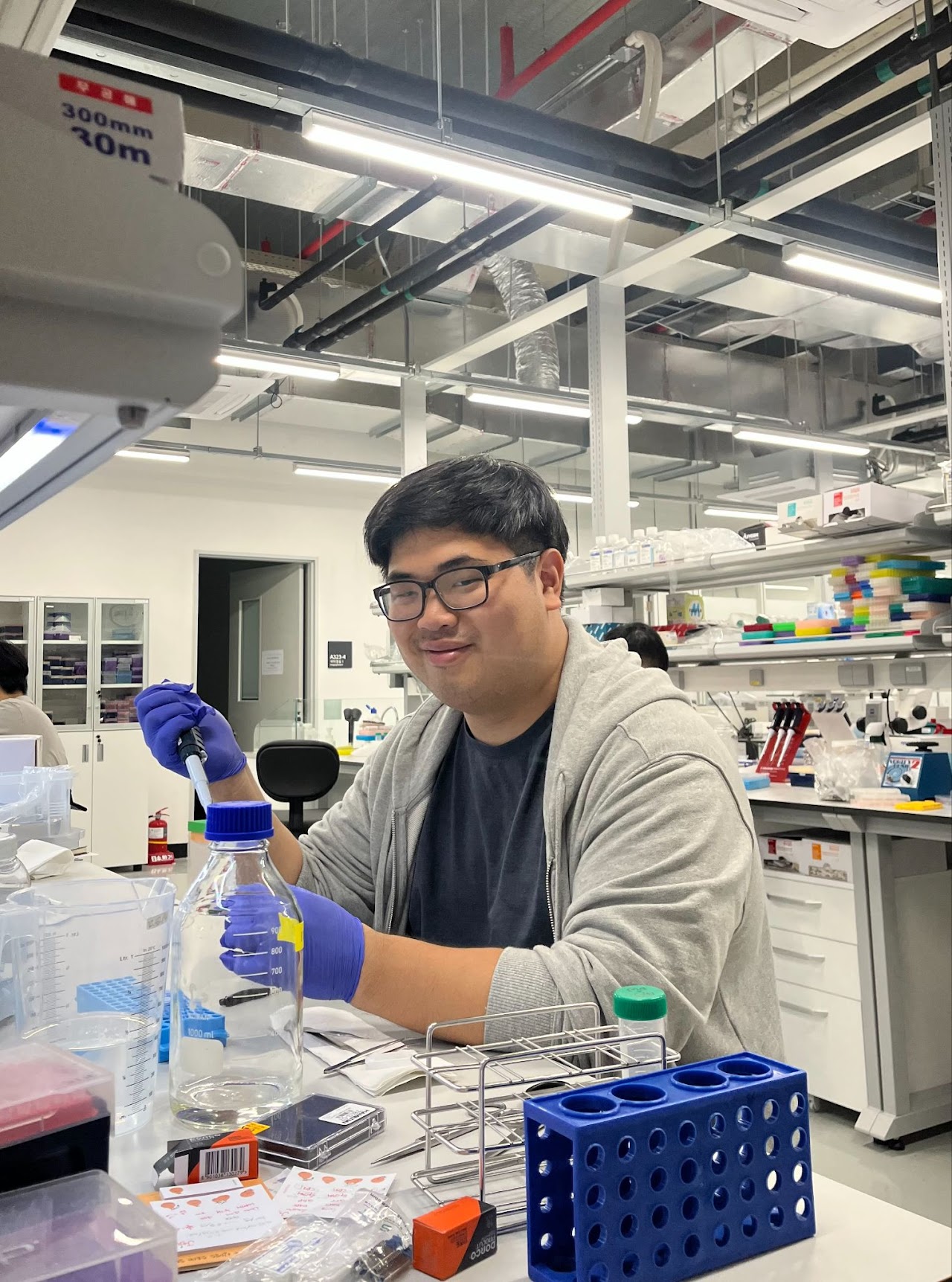
Sijeong Lee
- Alzheimer’s Disease
- Parkinson’s Disease
- Glia Cell
- Aging and Senescence
- Immunity
During my undergraduate studies in the Department of Life Sciences, I was most interested in neurological diseases, especially neurodegenerative diseases represented by Alzheimer's and Parkinson's diseases. To understand the complex mechanisms of neurodegenerative diseases, I am conducting a degree program at Professor Kam's lab in the Department of Brain Cognitive Sciences with the aim of enhancing an overall understanding of neurodegenerative diseases using immunity and metabolism occurring inside or outside the brain, as well as nerve cells and glial cells in the brain. Currently, I am conducting research to uncover various causes, treatments, and mechanisms that are likely to lead to degenerative brain diseases, including research on the role of the peripheral immune system in the Parkinson's disease. Based on these studies, I want to 1. provide a higher-resolution understanding of the mechanisms of degenerative brain diseases 2. reduce the gap in understanding of diseases that seen on Bench-to-Bedside, 3. contribute to the treatment of degenerative brain diseases by establishing new drugs and patient-specific therapeutic platforms.
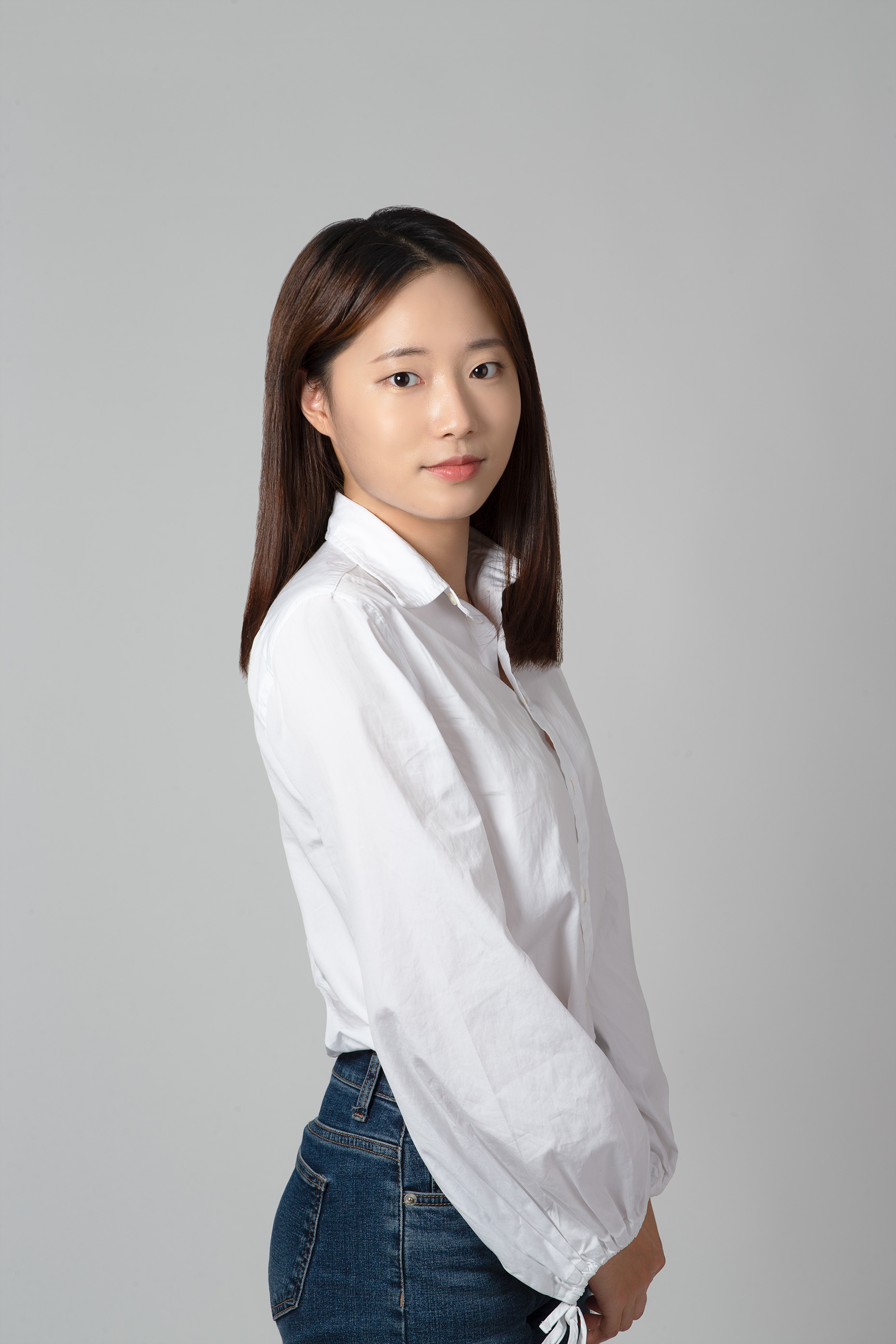
Yujin Lee
- CognitiveScience
- ExperienceDesign and the Brain
- Consciousness
- Experience
Yujin Lee, who majored in design during her undergraduate studies, developed an interest in visual expression and user experience. Subsequently, she discovered intersections between design and cognitive neuroscience. Intrigued by the allure of using neuroscience methods to observe and understand human behavior and thought, she joined the Brain and Cognitive sciences department at KAIST to delve deeper into the human experience. Currently pursuing her master's degree under Professor HyeongDong Park, her goal is to gain a greater understanding of humans through interdisciplinary research methods and contribute scientifically to the happier lives of individuals.
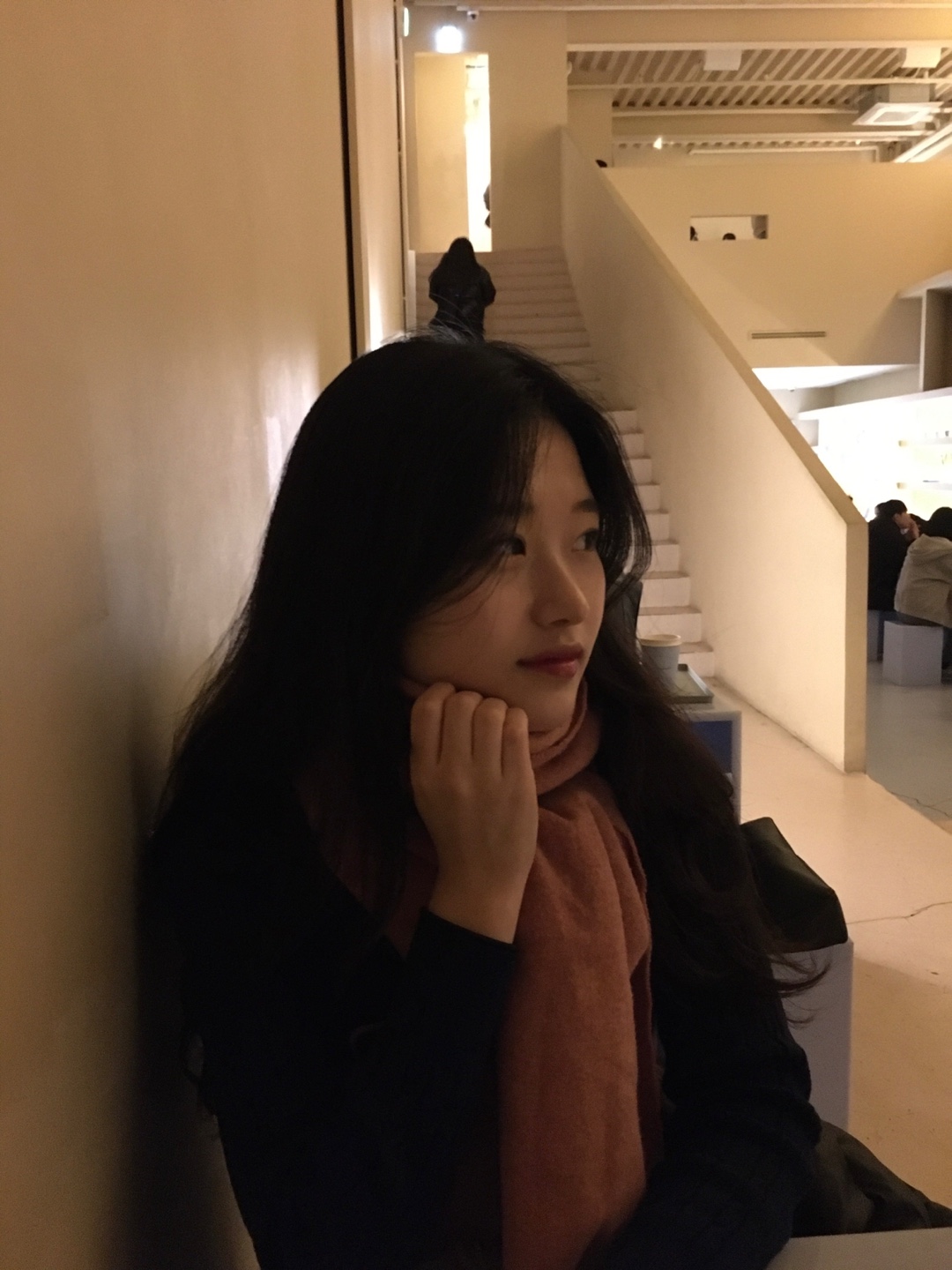
Lee, Yuchae
- personalized diagnosis
- degenerative disease
- Parkinson's disease
- Alzheimer's disease
- iPSC
- fibroblasts
While majoring in animal biotechnology and psychology, I became interested in various abnormal behaviors and brain diseases caused by cognitive errors. By conducting animal behavior experiments in the laboratory of learning and memory brain cognitive science, it provided an opportunity to gain understanding of the neurophysiological mechanisms of memory and to gain important research experience in understanding degenerative brain diseases.
I aim to investigate the neurobiological causes of individual patients with degenerative brain disease through research using stem cells in BRL lab, and to suggest customized treatment for patients based on this.
Jee-In Lee
- Traumatic brain injury
- wound healing
- Brain fibrosis
- Neural repair
I am currently conducting research with Professor Dae Soo Kim in the Behavioral Genetics Laboratory. I am focusing on exploring the intricate molecular mechanism of the wound-healing process after brain injuries and utilizing this knowledge to pioneer innovative treatment methods. Given the complexity and vulnerability of brain injuries, it has been a challenge in our society to develop effective treatments for them. Consequently, my research is dedicated to elucidating the progression mechanisms of wound healing in the brain, and it is expected to contribute to finding effective therapeutic targets for brain injury. Through this research, I hope to offer an opportunity to enhance the quality of life for patients afflicted by brain injuries and their families.
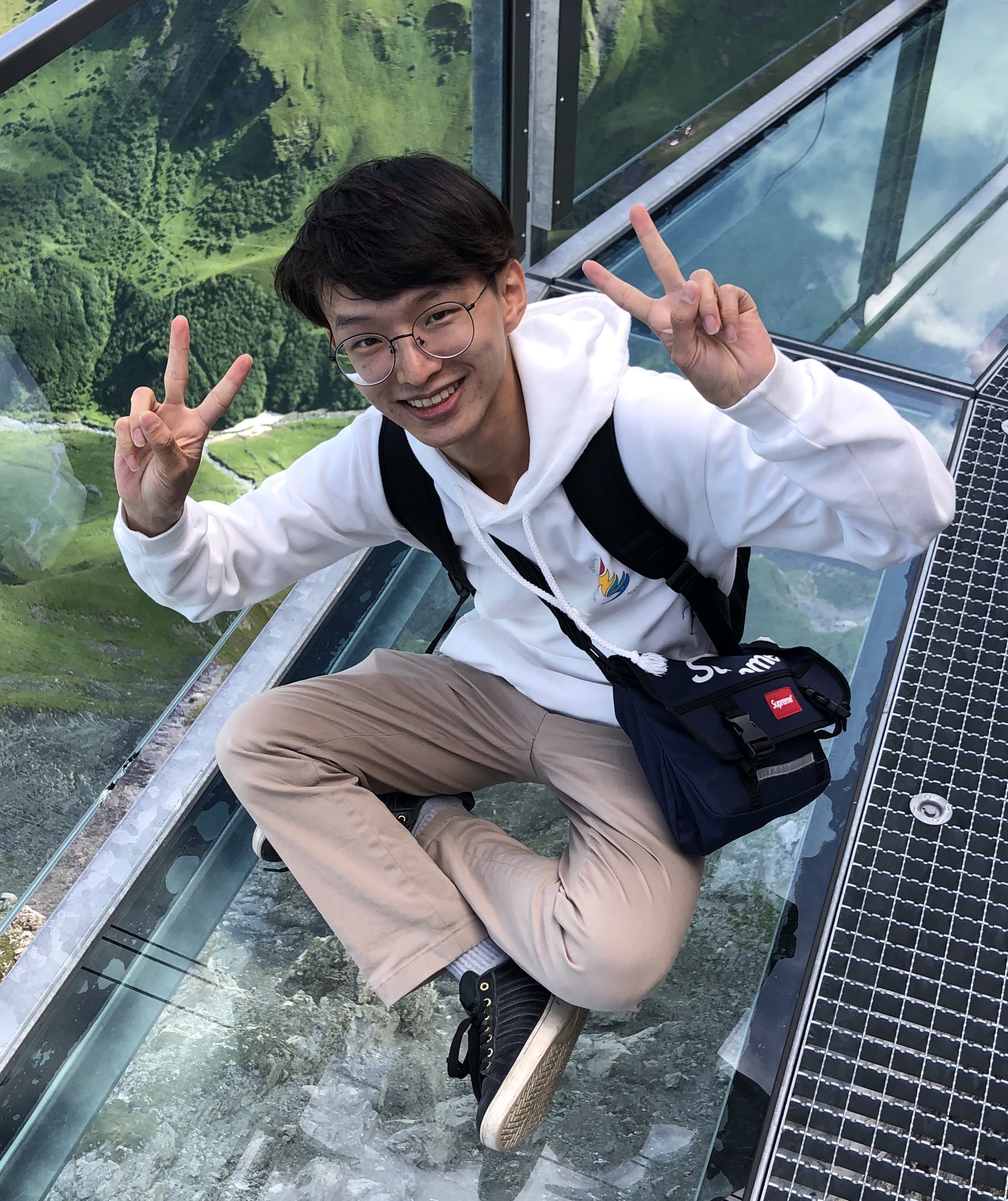
ChanWoo Lee
- NeuralCircuit
- Neurotransmitter
- Consciousness
- Attention
- Sleep
Understanding who we are is a desire shared by all brain researchers. I was no exception, and believed that understanding the nervous system that forms the minds of myself and others would allow me to better answer the most fundamental questions. To understand the complex nervous system, I thought a multidisciplinary approach was essential, so I decided to study in the Department of Brain and Cognitive Sciences at KAIST.
I am interested in elucidating the neural circuits and neurotransmitters involved in specific mental processes and behaviors of animals. In particular, I am interested in elucidating neural circuits involved in attention and sleep using animal models like mice.
Ultimately, I want to contribute to research that reveals how numerous neurons interact to control the decision-making of animals and how they create consciousness
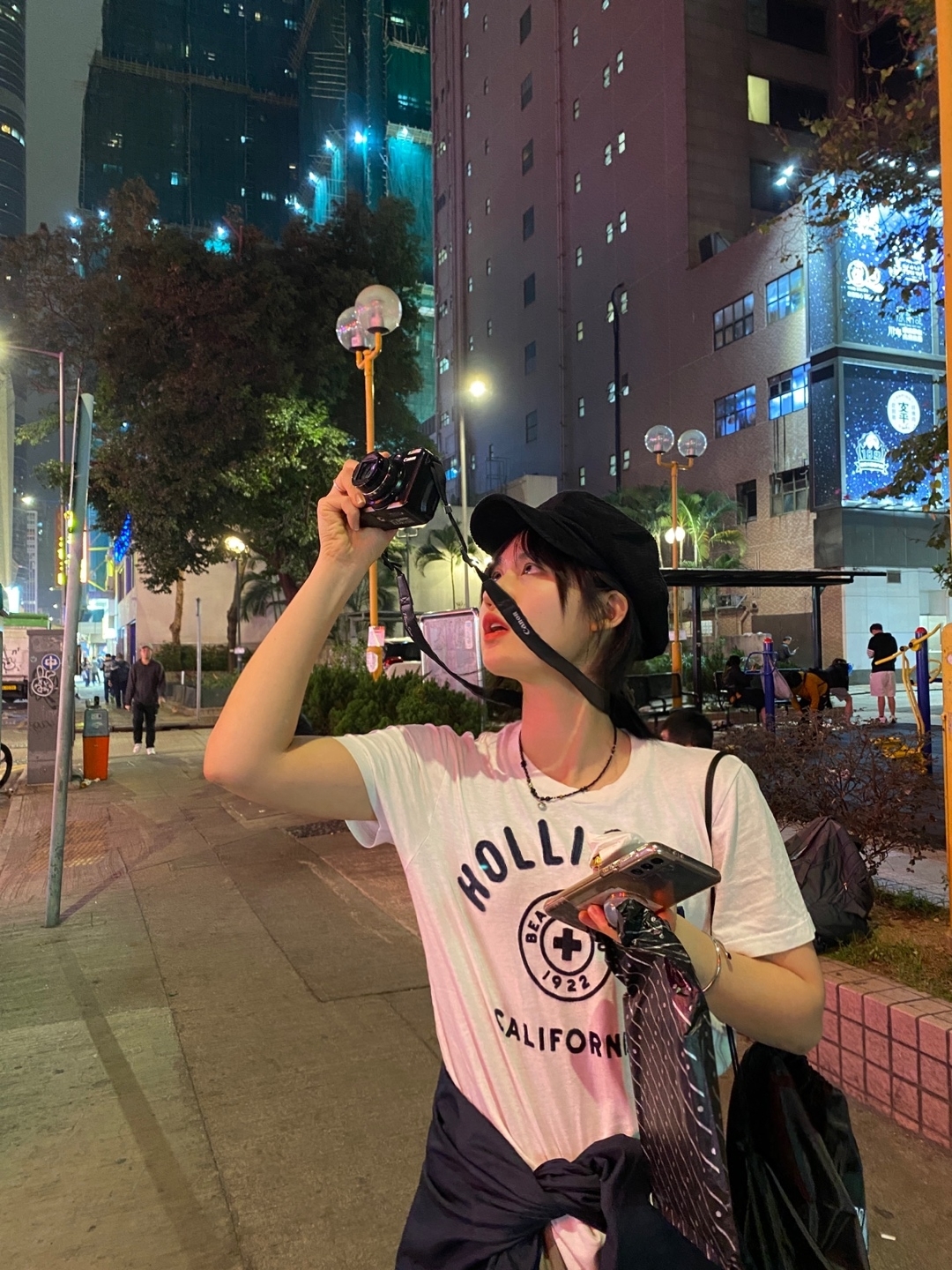
Lee Hyunmin
- Sleep disorders
- Sleep homeostasis
- Neurotransmitters
- Stress
- Behavioral neuroscience
I believe that no matter how astonishing a phenomenon is, it must be accompanied by thorough analysis and rational interpretation to truly have meaning. I have always been fascinated by observable phenomena in humans, especially their behaviors. This led me to develop a dream of creating a well-constructed documentary(film) that explores specific human behaviors.
During my undergraduate studies, I majored in Media and Psychology, where I was introduced to the field of neuroscience. The idea that we can interpret our behaviors through the study of the brain intrigued me, which inspired me to further pursue this path.
At the KAIST Department of BCS, I will be conducting research with Professor Ja-Kyong Kim on the molecular basis of sleep regulation. My goal is to analyze the genes that control sleep patterns and better understand how external factors, such as stress, influence the quantity and quality of sleep on a molecular level. Through behavioral analysis, I also hope to uncover the relationship between cognitive functions and sleep, and contribute to the development of treatments for sleep disorders.
I’ve noticed that people's interest tends to focus more on "how to sleep better" rather than on the meaning or necessity of sleep itself. I hope that my research will provide a rational interpretation of sleep, encouraging people to actively seek out the deeper significance of sleep in their lives.
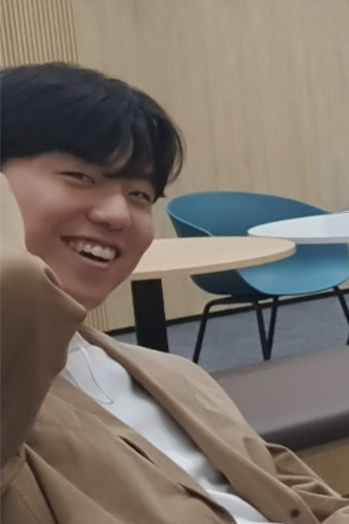
Seokjin Jeong
- Consciousness
- AI
- Learning
- Intelligence
- Creativity
Seokjin Jeong has always been fascinated by the fact that people living in the same physical world experience and live in such different ways, as if they are living in different worlds. It seemed that people live in a worldview reflected through their own cognitive lens, and that stories and abstract concepts provide a strong force that drives them. Through psychology, Seokjin has explored how to bring the abstract concept of the human mind into measurable methods by contrasting the perceived world and the observed world. Through Brain & Cognitive Sciences, Seokjin aims to investigate how abstract concepts arise in the brain and how these abstract concepts interact within the brain. Since people's worldviews and psychological experiences are both emergent properties from electrical signals within the brain, Seokjin believes that through neurobiological research on the brain, it is possible to provide a physical explanation that penetrates human psychological experiences. Though researching people, Seokjin dreams of connecting the diverse perceived worlds of people and presenting a new understanding of humanity.
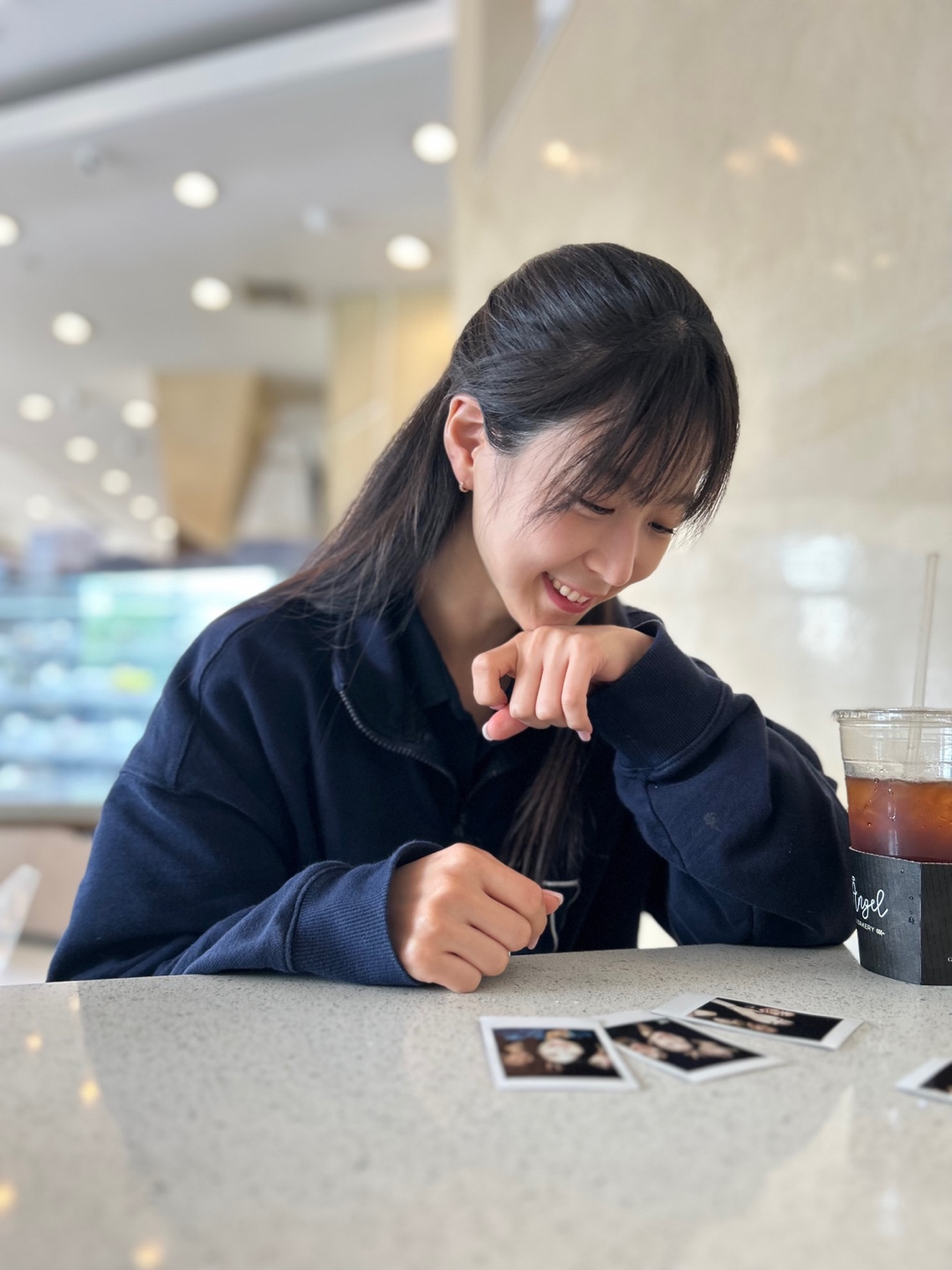
Jun Ha Jung
- Brain Computer Interface
- EEG
- Machine Learning
- Deep Learning
EEG based BCI system for recognition of stroke patient’s motor intention
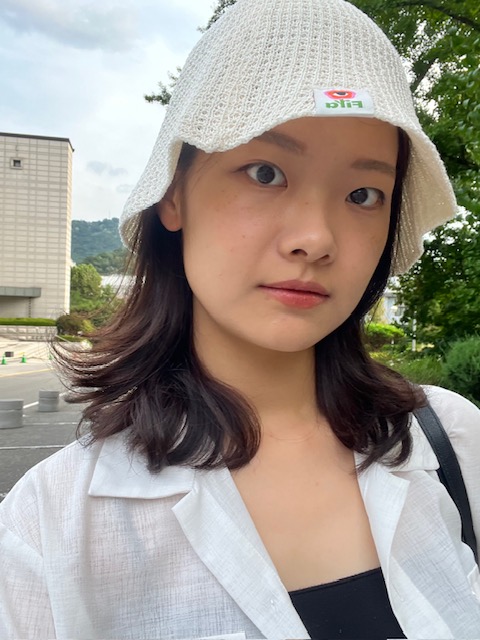
Jiwoo Jeong
- Optogenetics
- Movement Disorder
- Parkinson’s disease
- Behavioral test
- Neural Circuit
Brain has always intrigued me as a bridge of our body-material- and our soul-immaterial-, and at the same time the final frontier of the human body. I have graduated from Ewha Woman’s University with a Bachelor of Science Degree in Biology and Brain&Cognitive Sciences. Working in Professor Dae-Soo Kim's lab, my current research focuses on the mechanisms and therapy of Parkinson's disease. Based on bioenginerring tools including optogenetics, I study interactions between changes of brain in molecular-level and behavioral changes. My long-term objective is to make contributions to academy and society.

Jung, Changwon
- iPSC
- AI
- neurodegenerative disease
- personalized treatment
I was impressed by the characteristics of the brain cognitive science department, where they study the brain using AI and students from various fields gather to investigate together for this purpose. Currently, I am interested in researching the mechanisms of substances in the brain, and I want it to lead to the development of brain disease treatment or artificial intelligence development technology.
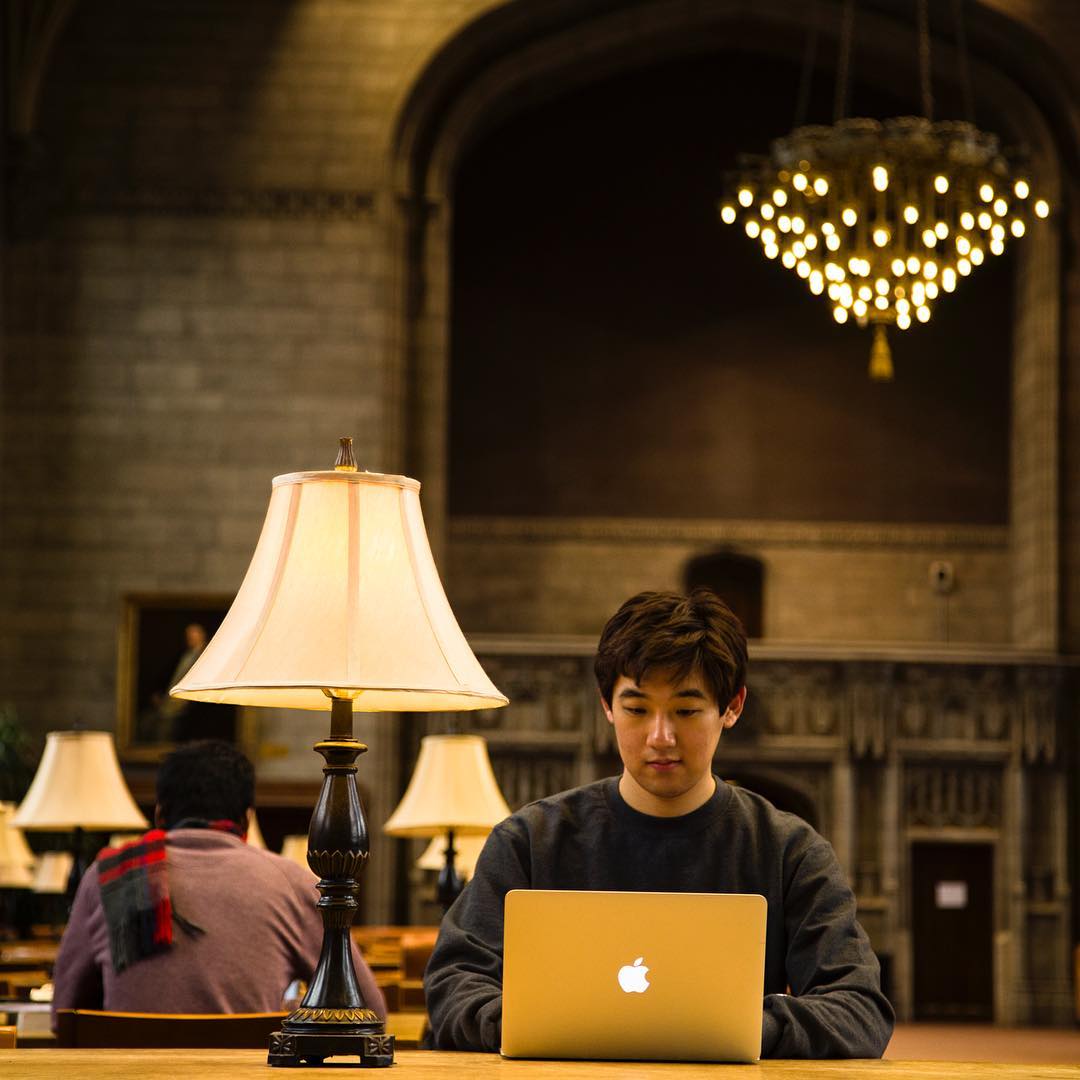
Cho, HyungJin
- Decision Science
- Choice Architecture
- Behavioral Economics
- Neuroeconomics
HyungJin Cho aims to illuminate the psychological processes and neural mechanisms involved in decision-making. His research area covers decision science, choice architecture, behavioral economics, and neuroeconomics. He is particularly interested in understanding how social rewards differ from economic rewards.
Byung hyug choi
- Alzheimer's disease
- Cognitive science
- Age & sensory-related Cognitive Research
- Behavior-Based Cognitive Research
- machine learning based brain network analysis
I graduated from the Department of Biological Sciences at KAIST and joined the Department of Brain and Cognitive Sciences to pursue research related to neurodegenerative diseases. I believe that neurodegenerative diseases, arising from the accumulation of complex issues, require integrated analysis for the development of prevention and treatment methods. To carry out such research, it is crucial to understand the brain in an integrated way, which is why I am conducting my research in the Department of Brain and Cognitive Sciences. Currently, I use machine learning to classify subtypes of dementia. Moving forward, I plan to earn my degree through research that classifies individual characteristics of patients with neurodegenerative diseases and explores ways to inhibit disease progression through sensory and external stimuli. As life expectancy increases, I aspire to contribute to research that ensures mental health keeps pace, helping humanity to stay mentally healthy in the future.

Han, Jiyun
- Aging and Senescence
- Neurodegenerative diseases
- Cognitive and memory
- Molecular biology
From an early age, I have been intersted by the field of biology, which seeks to explain the various phenomena that occur within living organisms. During my undergraduate studies, I realized that aging, despite its variability in speed and duration, is an inevitable process. This led me to reflect on how to promote healthy aging. Additionally, I became increasingly interested in the brain, as I learned that complex human cognition, learning, and behavior can be explained through molecular mechanisms within the brain.
Building on this interest, I aim to investigate the molecular mechanisms underlying cognition and memory formation, particularly those that have not yet been fully understood. By doing so, I hope to develop novel therapeutic strategies for neurodegenerative diseases that affect learning and cognitive functions, which is why I am applying to the Department of Brain and Cognitive Sciences.
Currently, I am conducting research in Professor Kam's lab, focusing on the molecular mechanisms that could serve as the basis for the treatment of neurodegenerative diseases. Throughout my graduate studies, I aim to deepen my knowledge of neuroscience and neurobiology, while developing the expertise needed to lead research in this field. Ultimately, I aspire to uncover new principles and biological phenomena that will provide innovative solutions to improve human health
